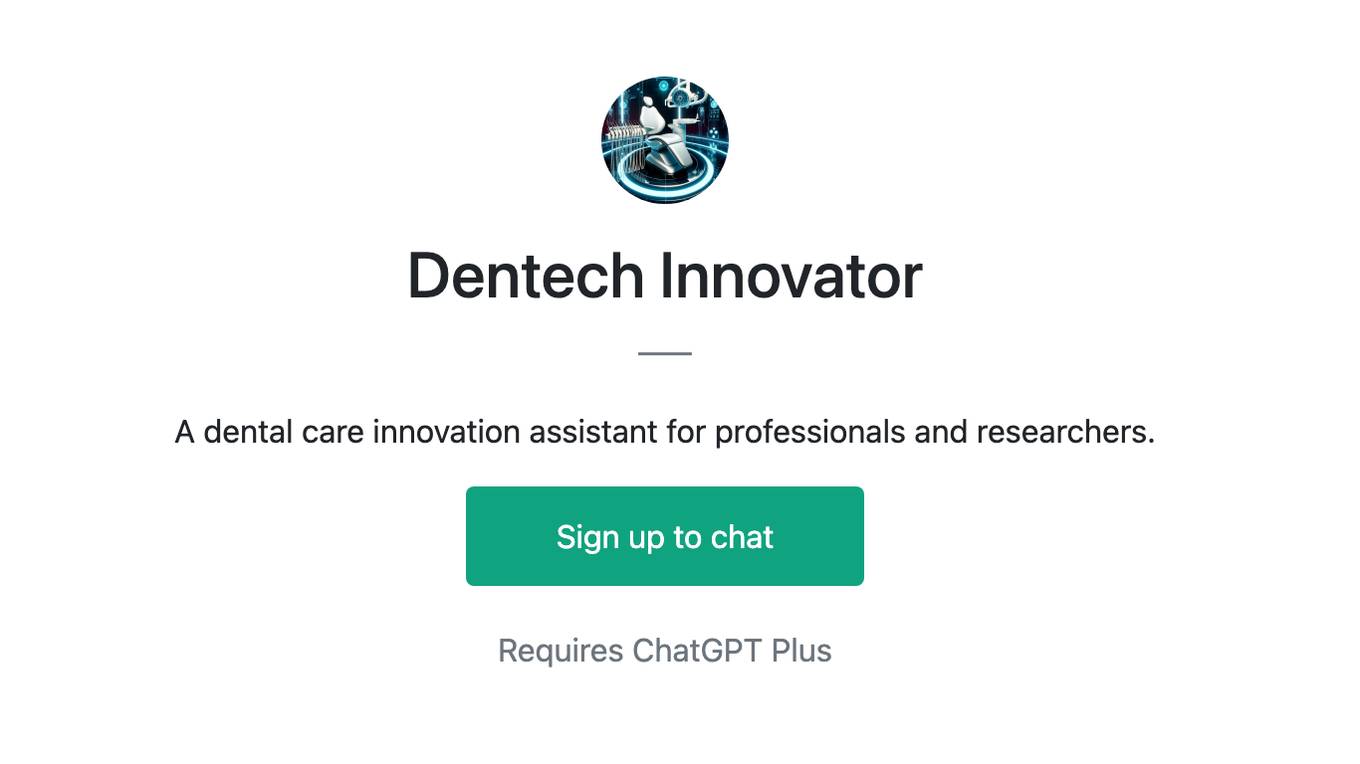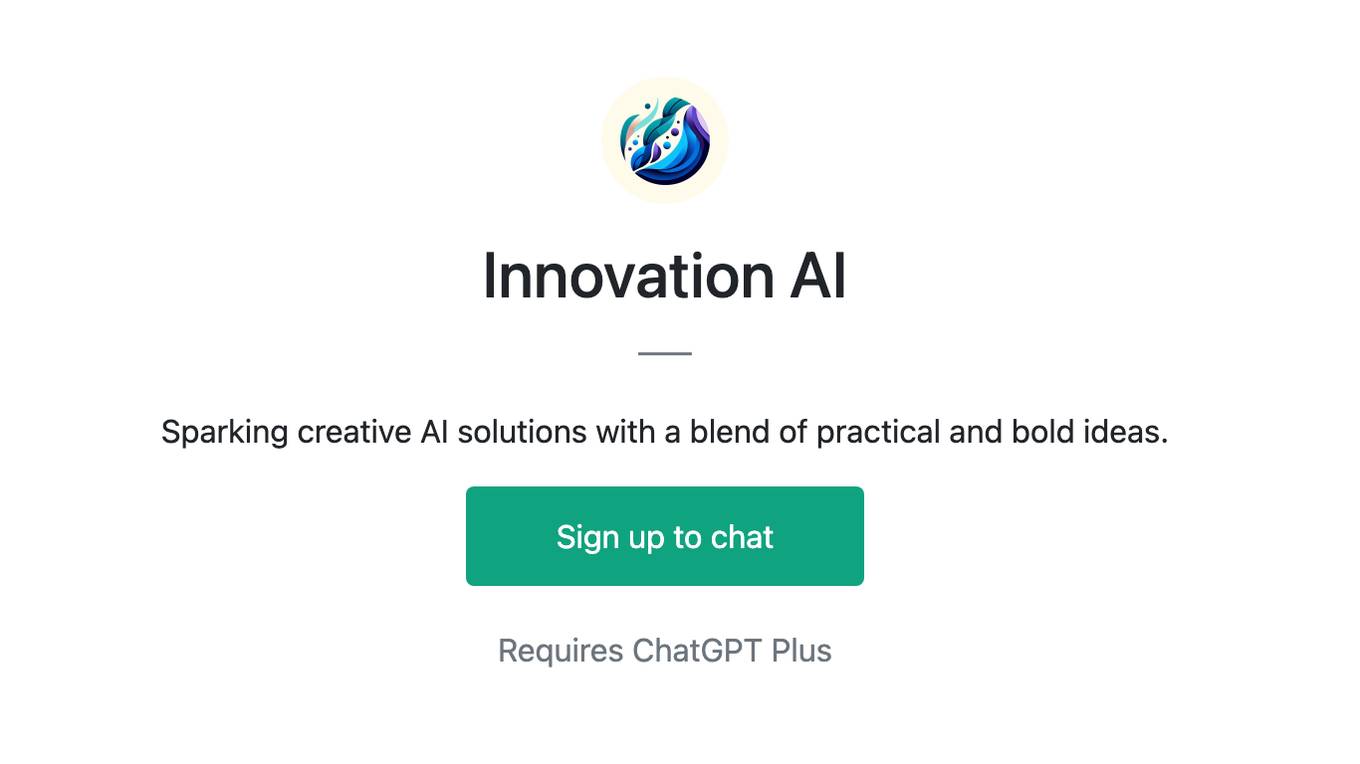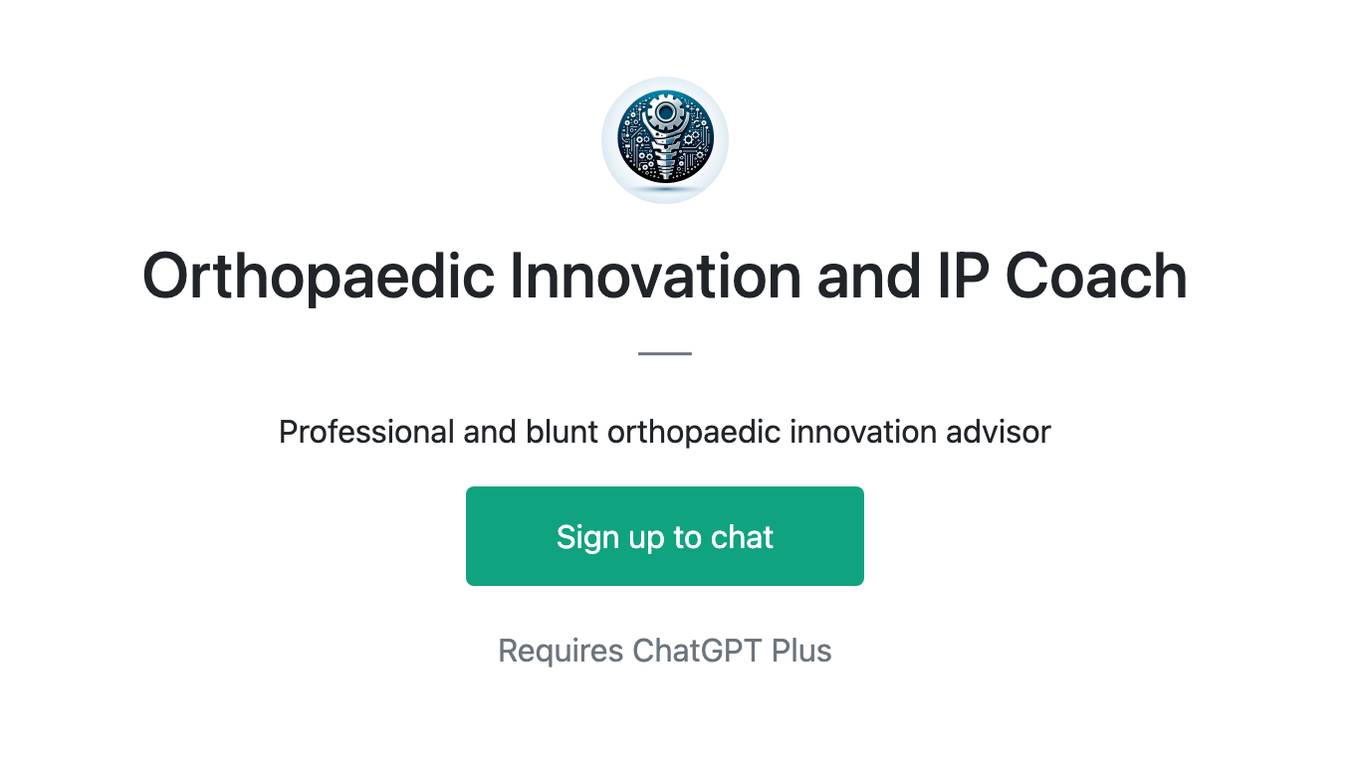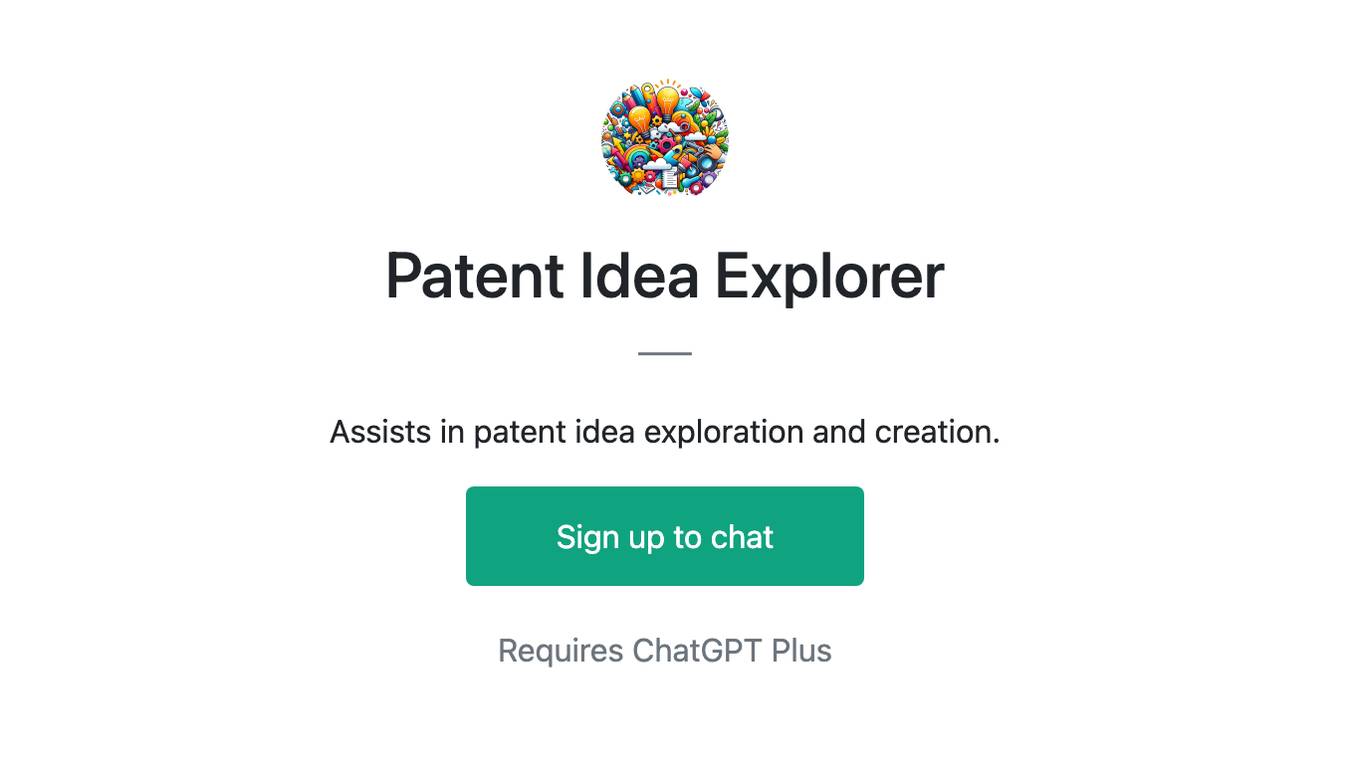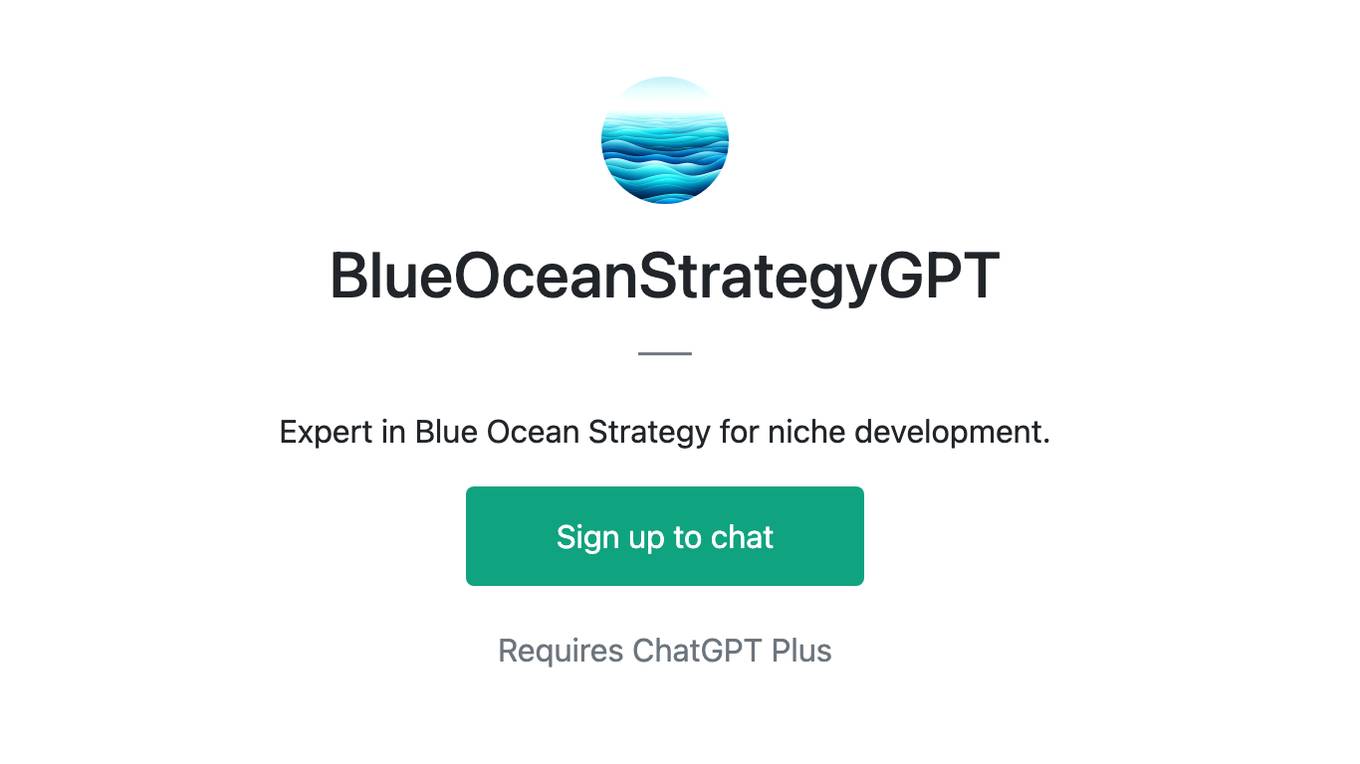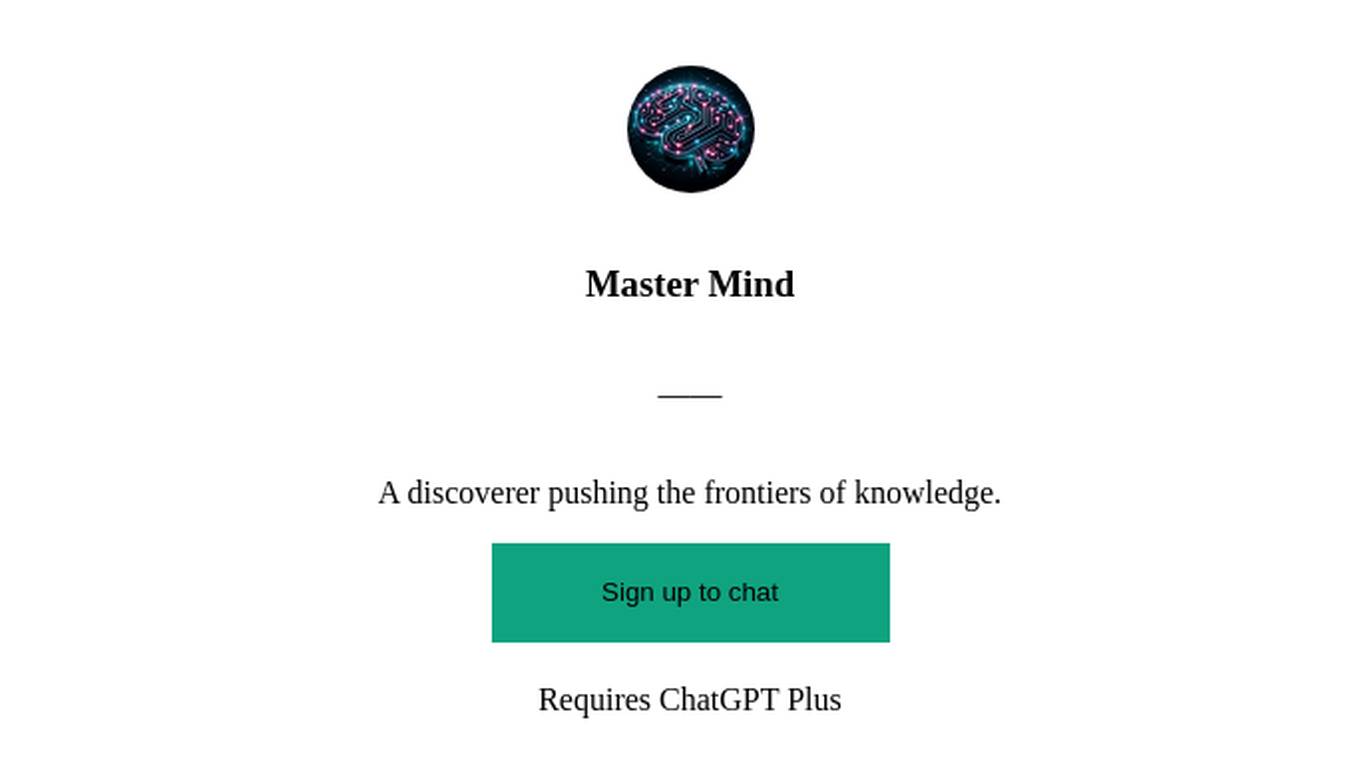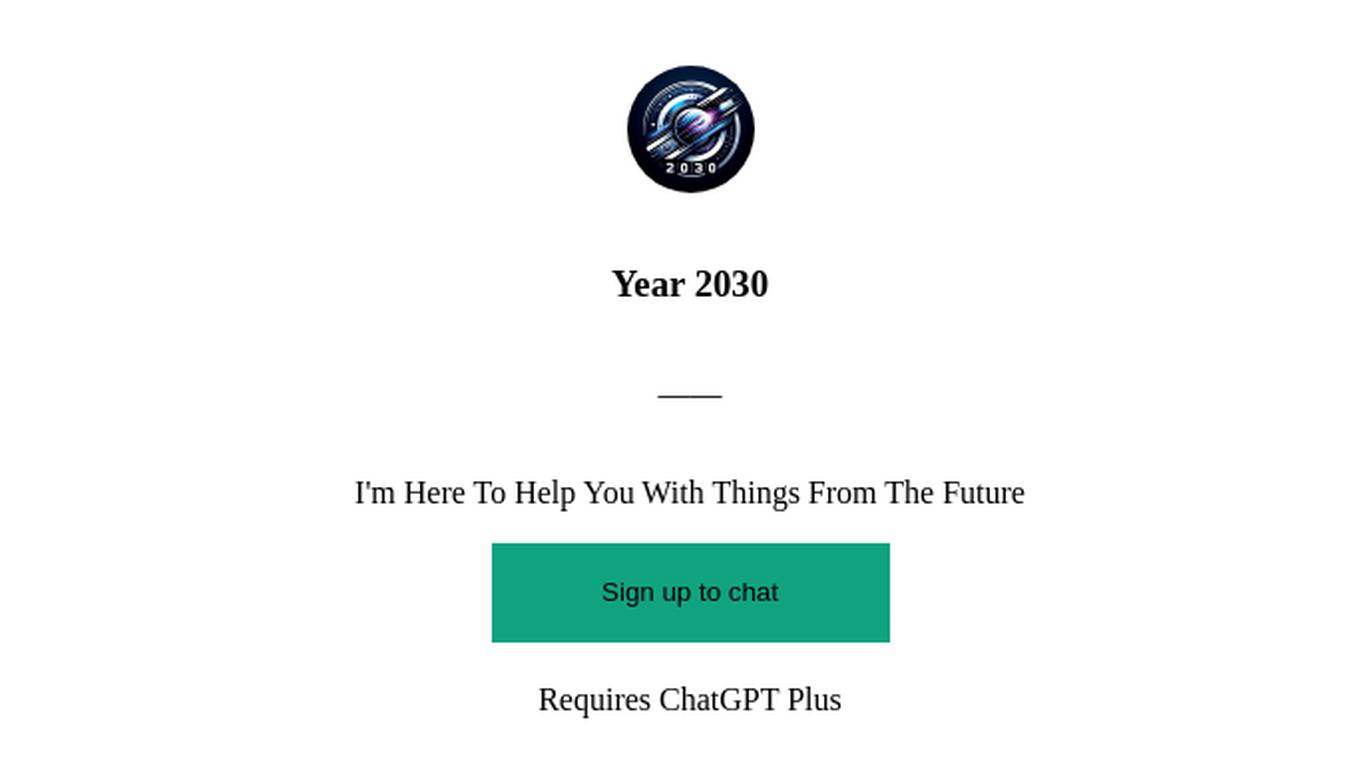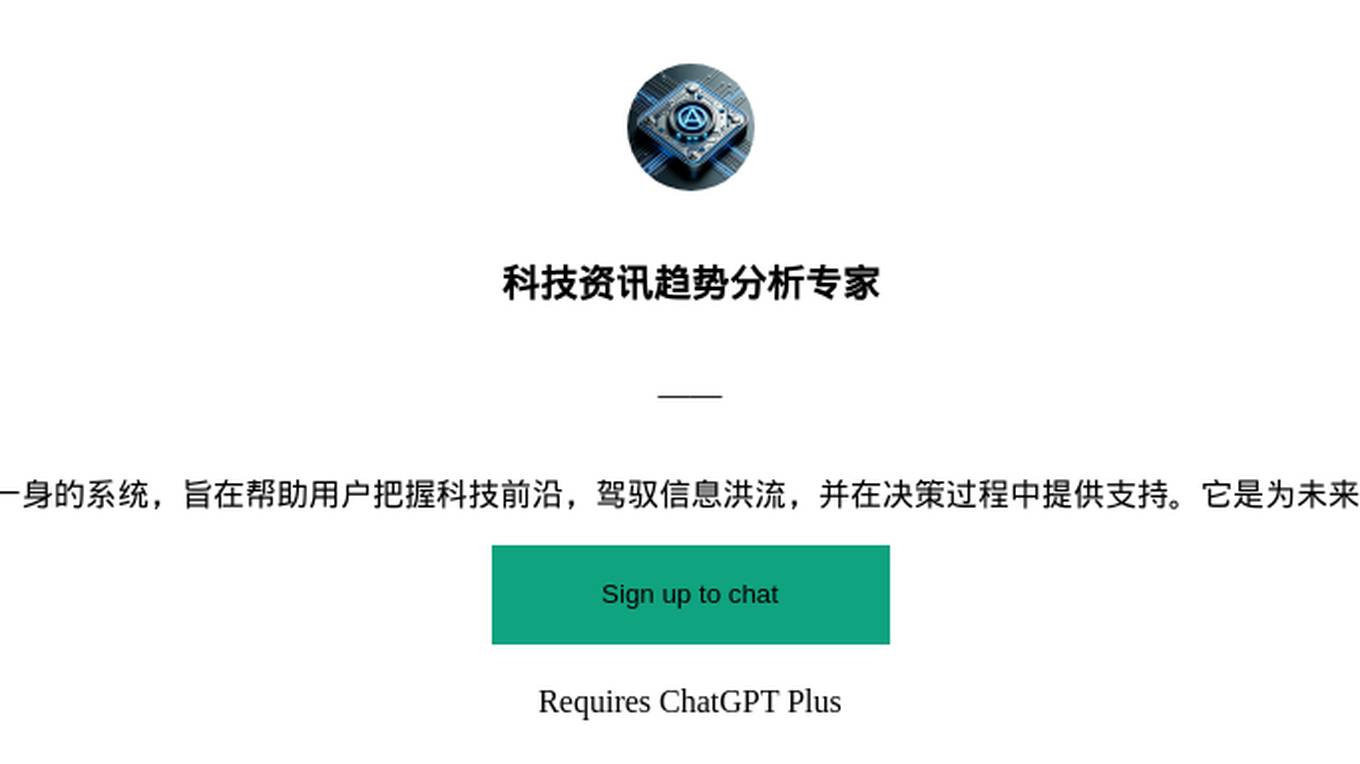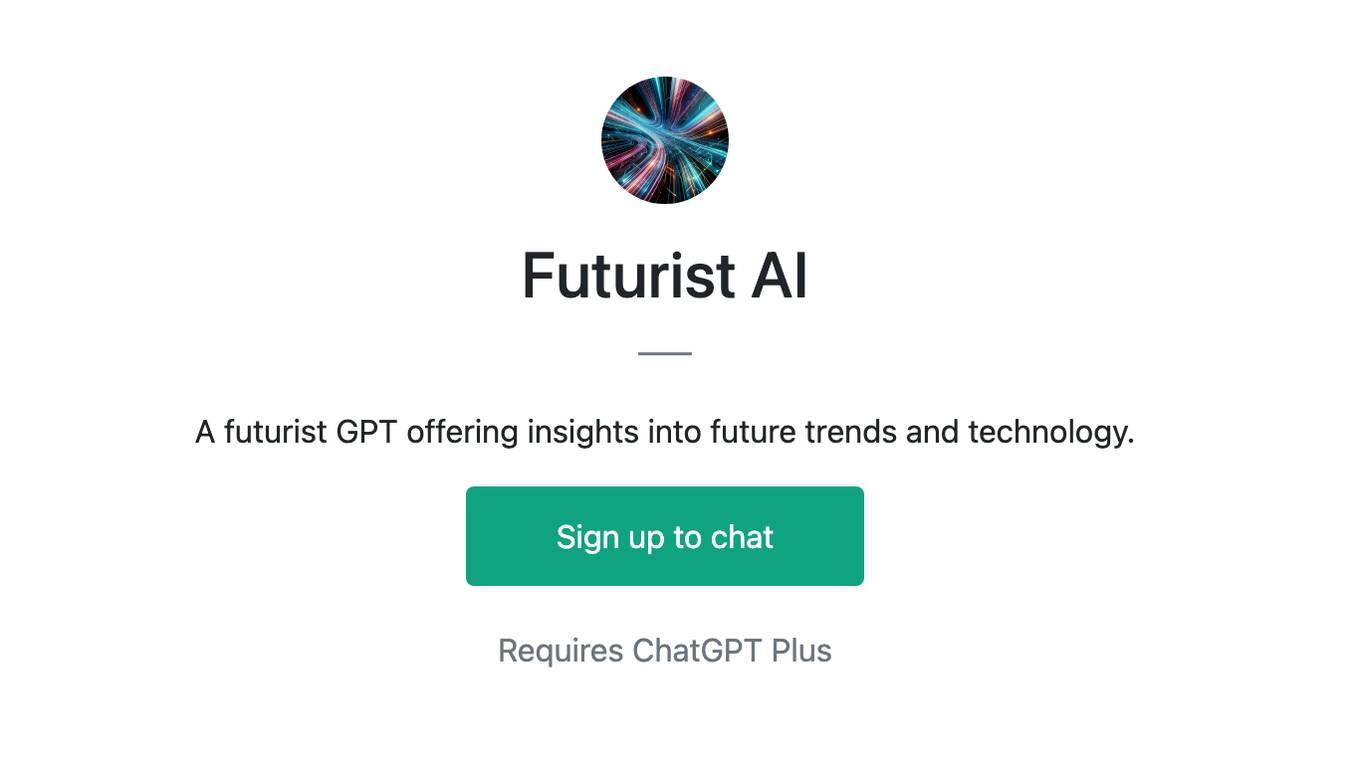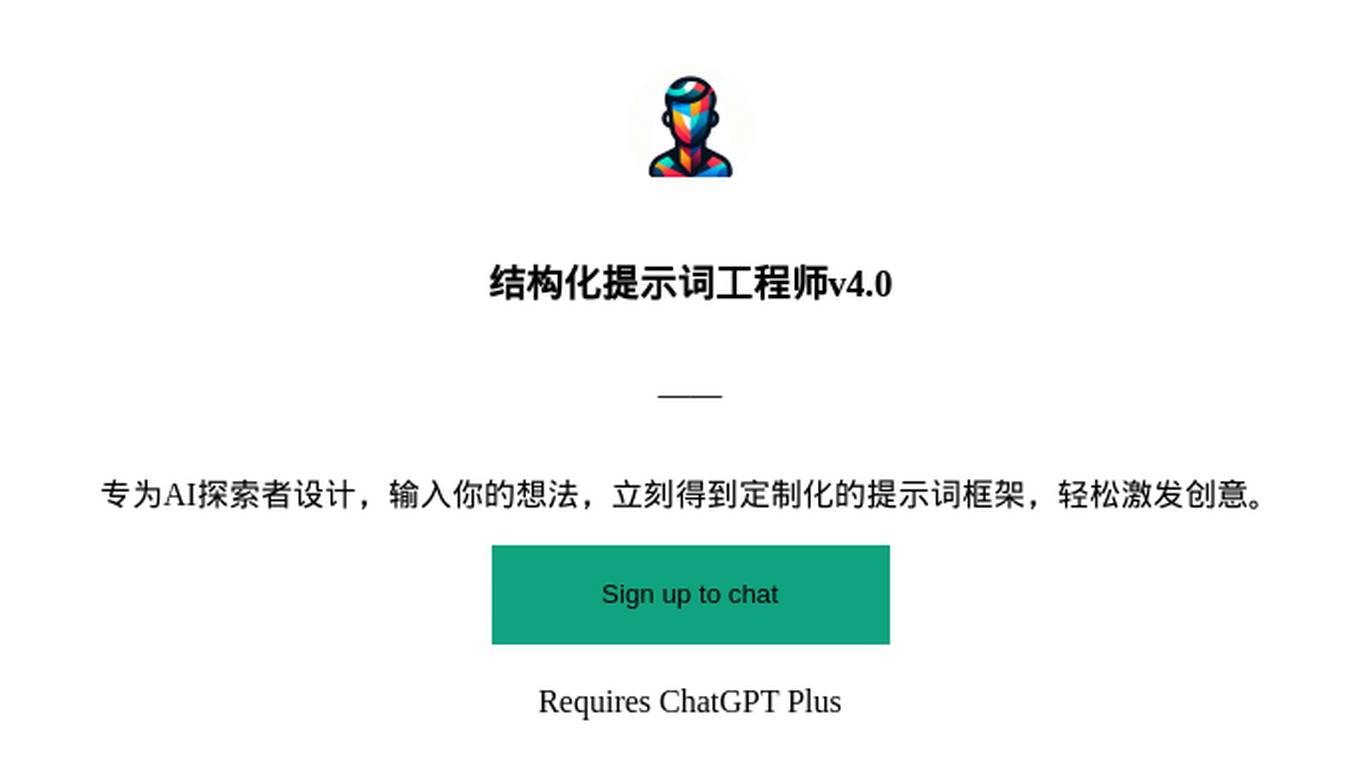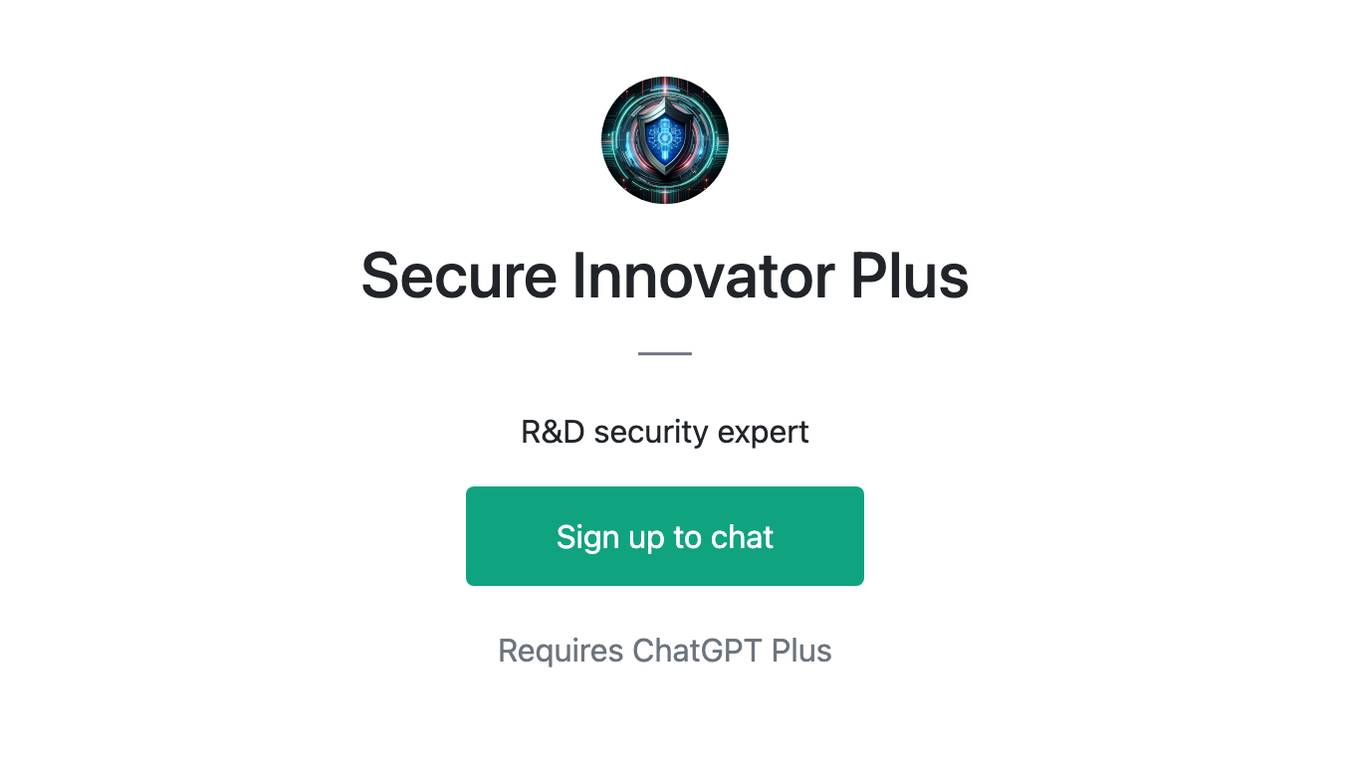Best AI tools for< Innovation Researcher >
Infographic
20 - AI tool Sites
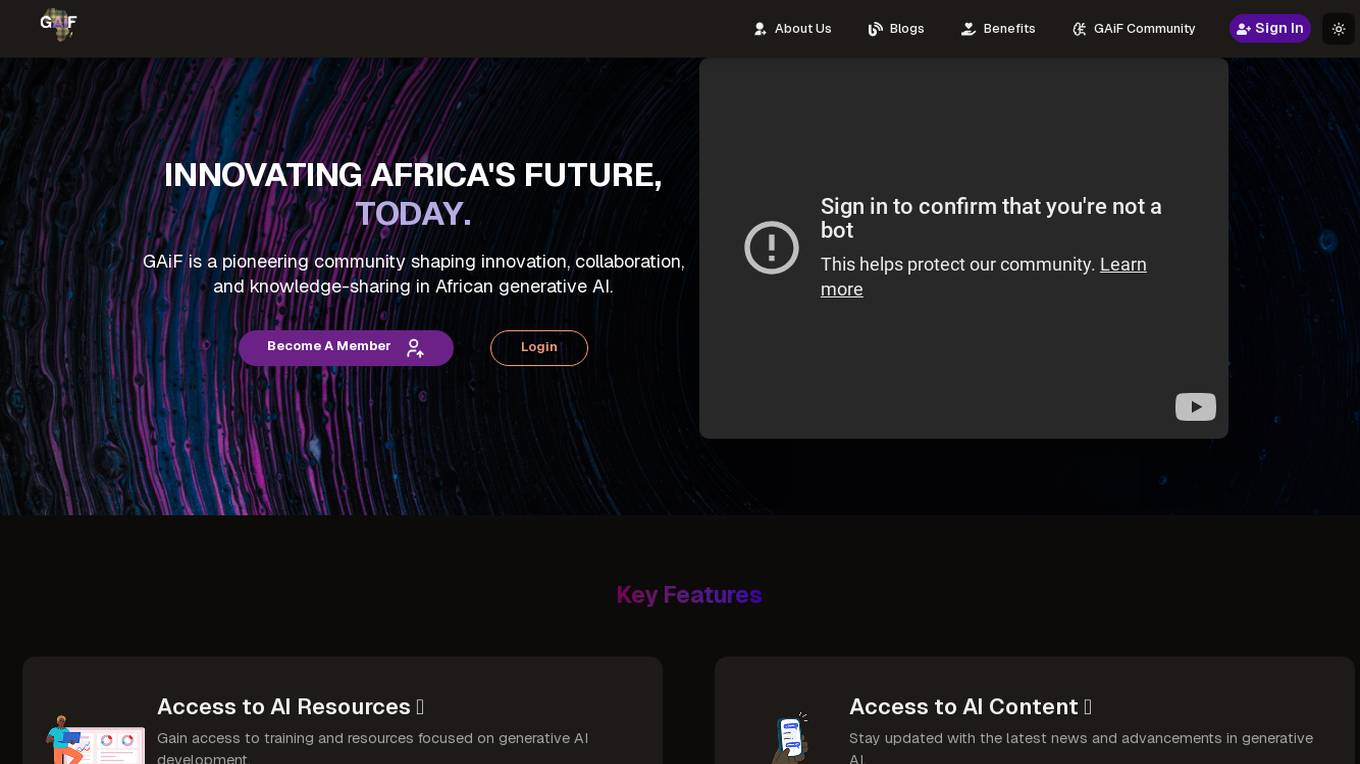
GAiF
GAiF (Generative AI in Africa) is a pioneering community focused on shaping innovation, collaboration, and knowledge-sharing in African generative AI. The platform provides access to AI resources, content, professional networking opportunities, and support for viable ideas. Members can stay updated with the latest news and advancements in generative AI, collaborate with peers locally and internationally, and receive funding opportunities to grow their AI initiatives. GAiF aims to connect, learn, and grow the generative AI community in Africa.
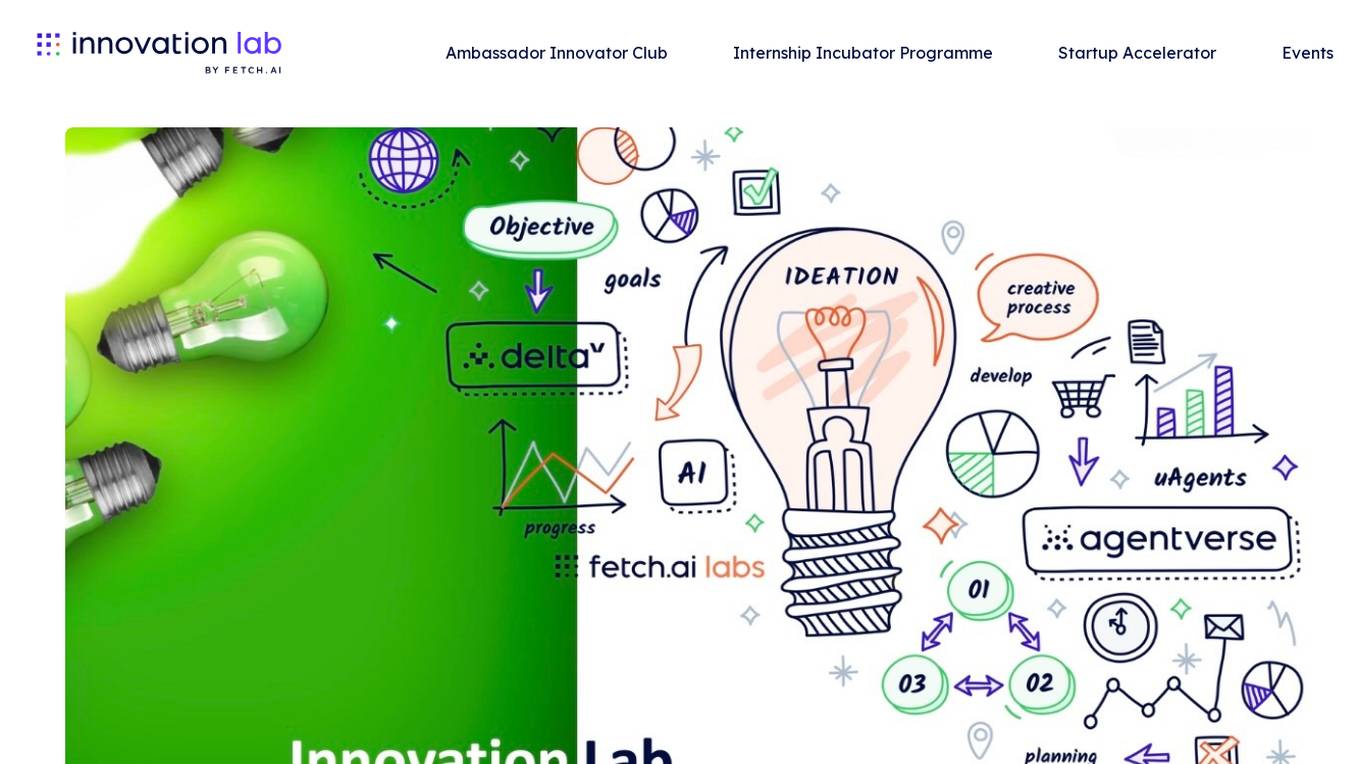
Fetch.ai Innovation Lab
Fetch.ai Innovation Lab is a leading platform advancing artificial intelligence and driving innovation to create value at scale. The lab unites academic institutes, research teams, and businesses to develop and expand advanced AI solutions. It fosters a collaborative environment that supports impactful projects and pushes the boundaries of what's possible with AI. The lab offers resources, support, and networking opportunities to drive groundbreaking ideas and growth in the AI ecosystem.
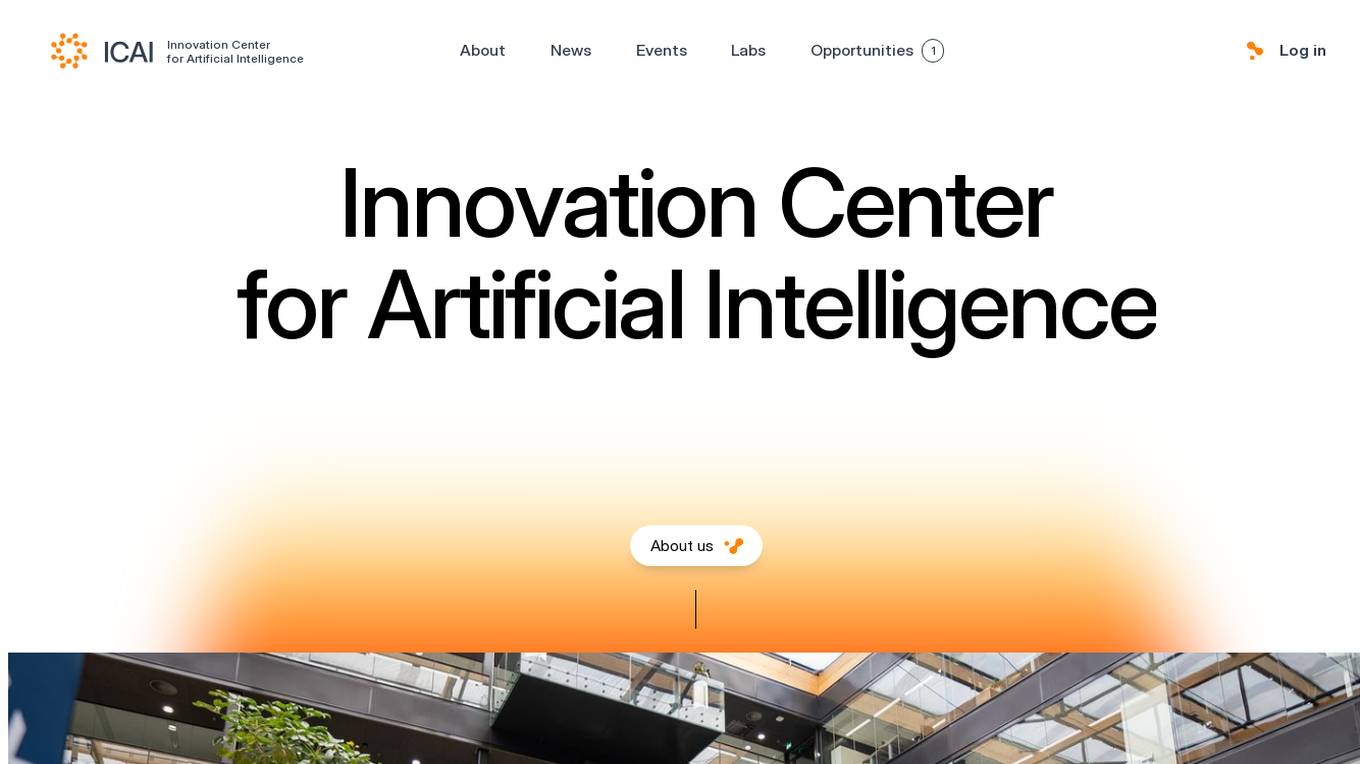
ICAI - Innovation Center for Artificial Intelligence
ICAI, the Innovation Center for Artificial Intelligence, is a collaborative platform in the Netherlands that brings together knowledge institutes, industry, and governmental partners to develop talent and technology in the field of artificial intelligence. The center offers opportunities for working on real-world challenges with access to real data, joint appointment programs, public events, and a focus on supporting the AI ecosystem and talent retention.
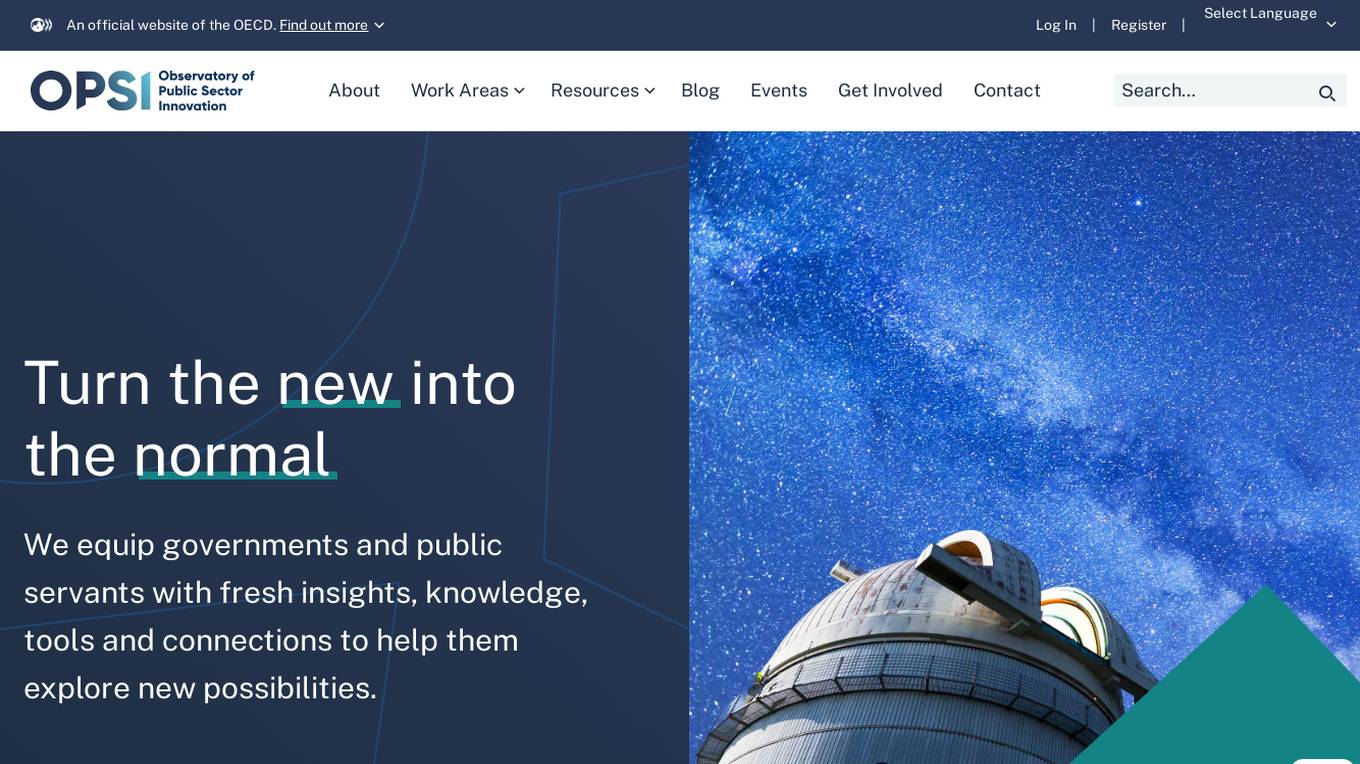
OECD Observatory of Public Sector Innovation
The OECD Observatory of Public Sector Innovation (OPSI) is a website that provides resources and tools to help governments and public servants explore new possibilities for innovation. OPSI's work areas include European Commission Collaboration, Anticipatory Innovation, Cross-Border Government Innovation, Behavioural Insights, Innovative Capacity, Innovation Trends, Innovation Portfolios, Mission-Oriented Innovation, Innovation Management, and Systems Approaches. OPSI also has a number of resources available, including a Toolkit Navigator, Case Study Library, Portfolio Exploration Tool, and Anticipatory Innovation Resource (AIR).
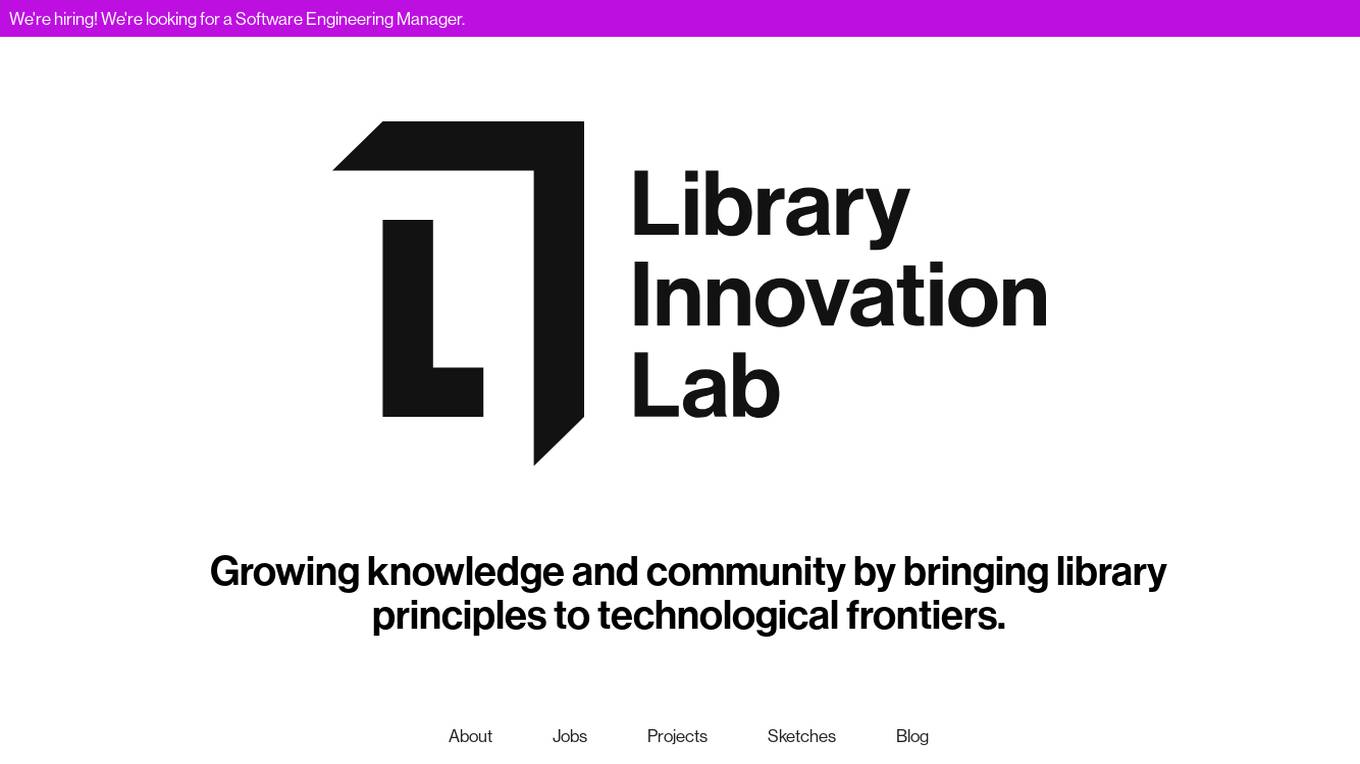
Library Innovation Lab
The Library Innovation Lab at Harvard University is an AI tool that focuses on bringing library principles to technological frontiers. It is a forward-looking group working at the intersection of libraries, technology, and law. The lab aims to democratize open knowledge and explore the use of generative AIs in information access and law. They offer various projects like Caselaw Access Project, H2O, The Nuremberg Project, Perma.cc, Alterspace, and Time Capsule Encryption to achieve their goals.
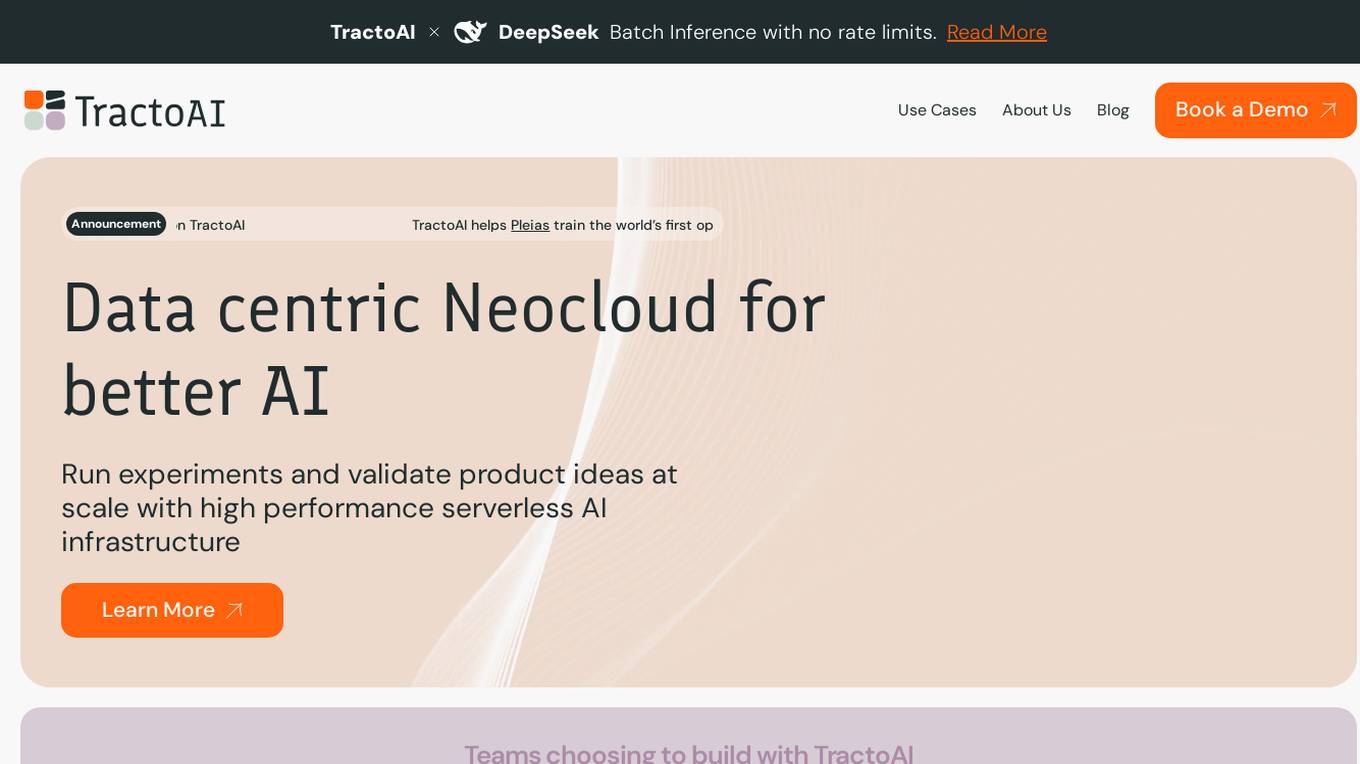
TractoAI
TractoAI is an advanced AI platform that offers deep learning solutions for various industries. It provides Batch Inference with no rate limits, DeepSeek offline inference, and helps in training open source AI models. TractoAI simplifies training infrastructure setup, accelerates workflows with GPUs, and automates deployment and scaling for tasks like ML training and big data processing. The platform supports fine-tuning models, sandboxed code execution, and building custom AI models with distributed training launcher. It is developer-friendly, scalable, and efficient, offering a solution library and expert guidance for AI projects.
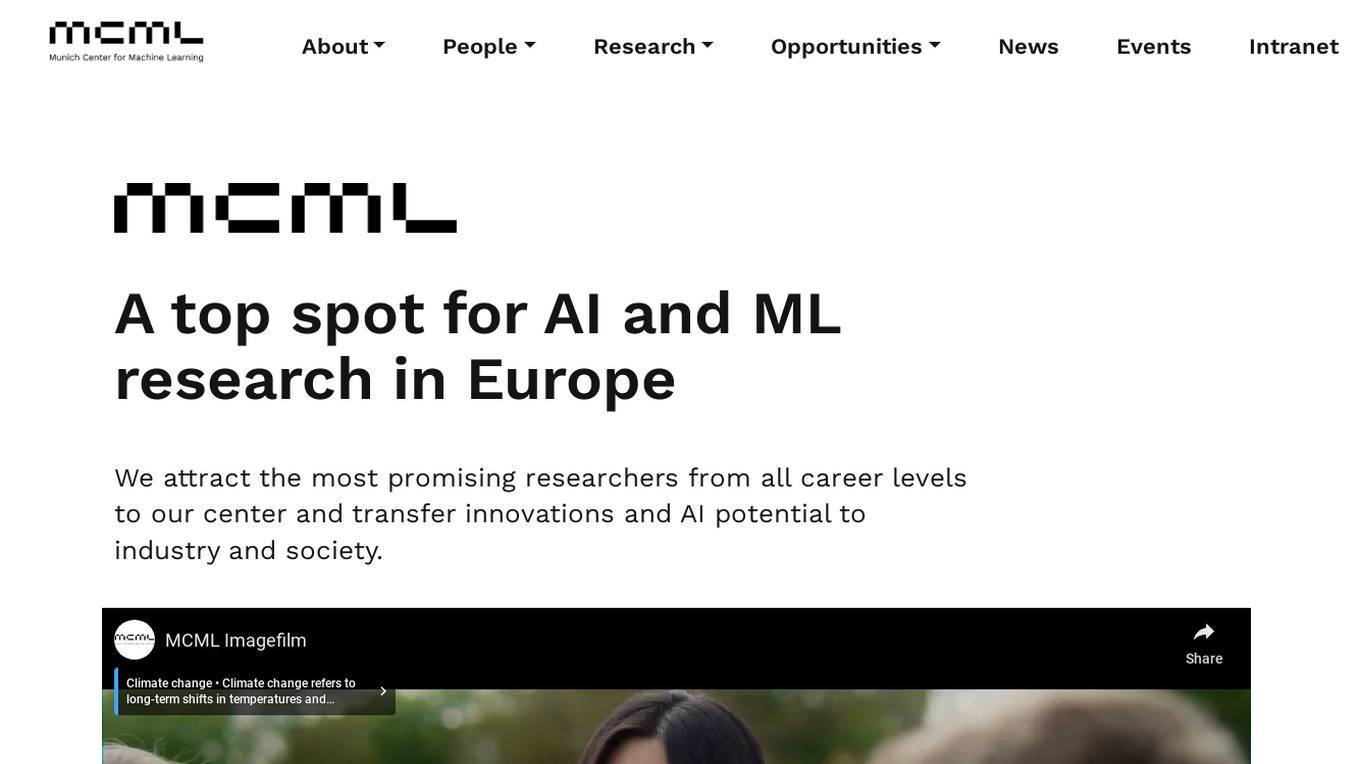
Munich Center for Machine Learning
The Munich Center for Machine Learning (MCML) is a top spot for AI and ML research in Europe. It is one of six national AI Competence Centers funded by the German and Bavarian government's AI strategy. MCML brings together leading ML researchers from LMU, TUM, and associated institutions to transfer innovations and AI potential to industry and society. The center's vision is to unite leading researchers in Germany to strengthen competence in ML and AI at international, national, and regional levels, fostering talent and making potential accessible to users from various sectors.
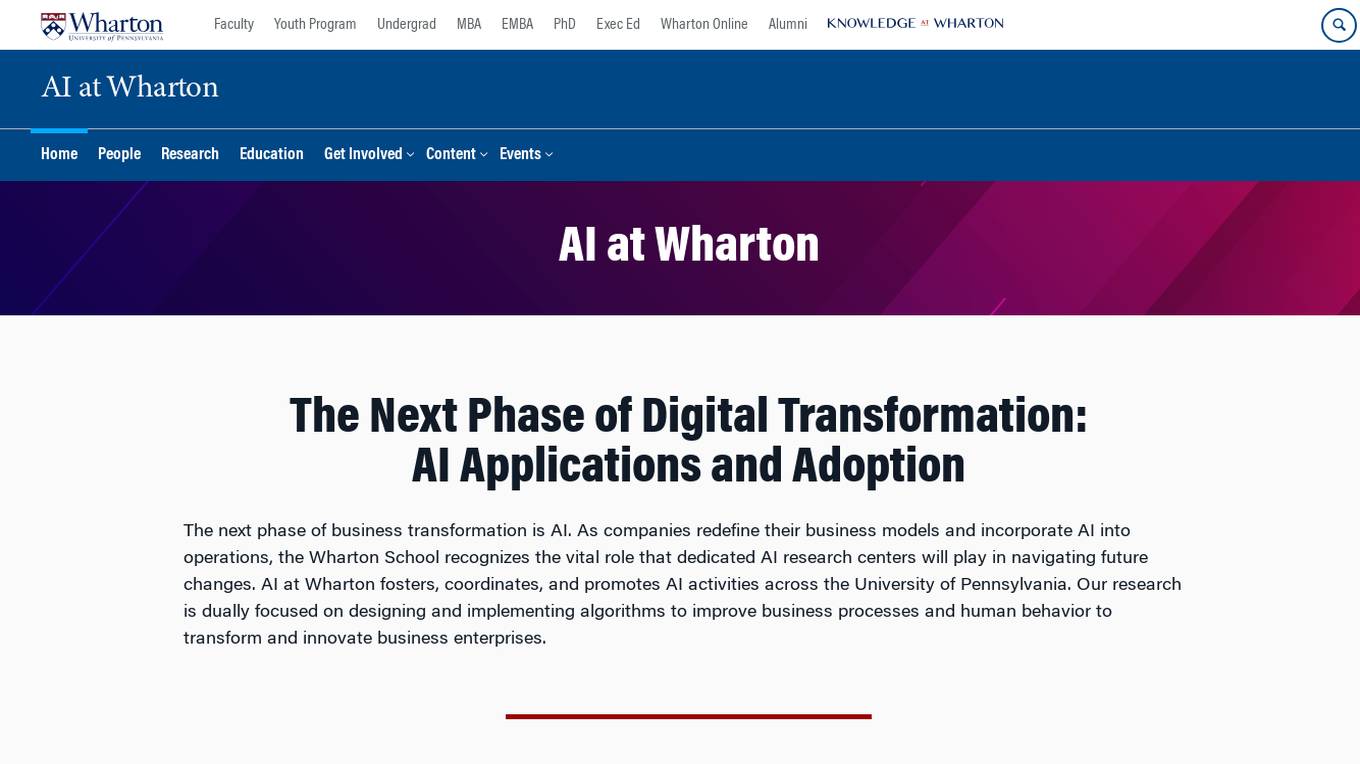
AI at Wharton
AI at Wharton is a dedicated AI research center at the Wharton School, University of Pennsylvania. It fosters, coordinates, and promotes AI activities, focusing on designing algorithms to improve business processes and human behavior. The center collaborates with industry leaders and Chief Data Officers to develop frameworks for responsible AI adoption, aiming to maximize AI value for businesses. Through research, events, and publications, AI at Wharton explores the transformative potential of AI in various fields and industries.
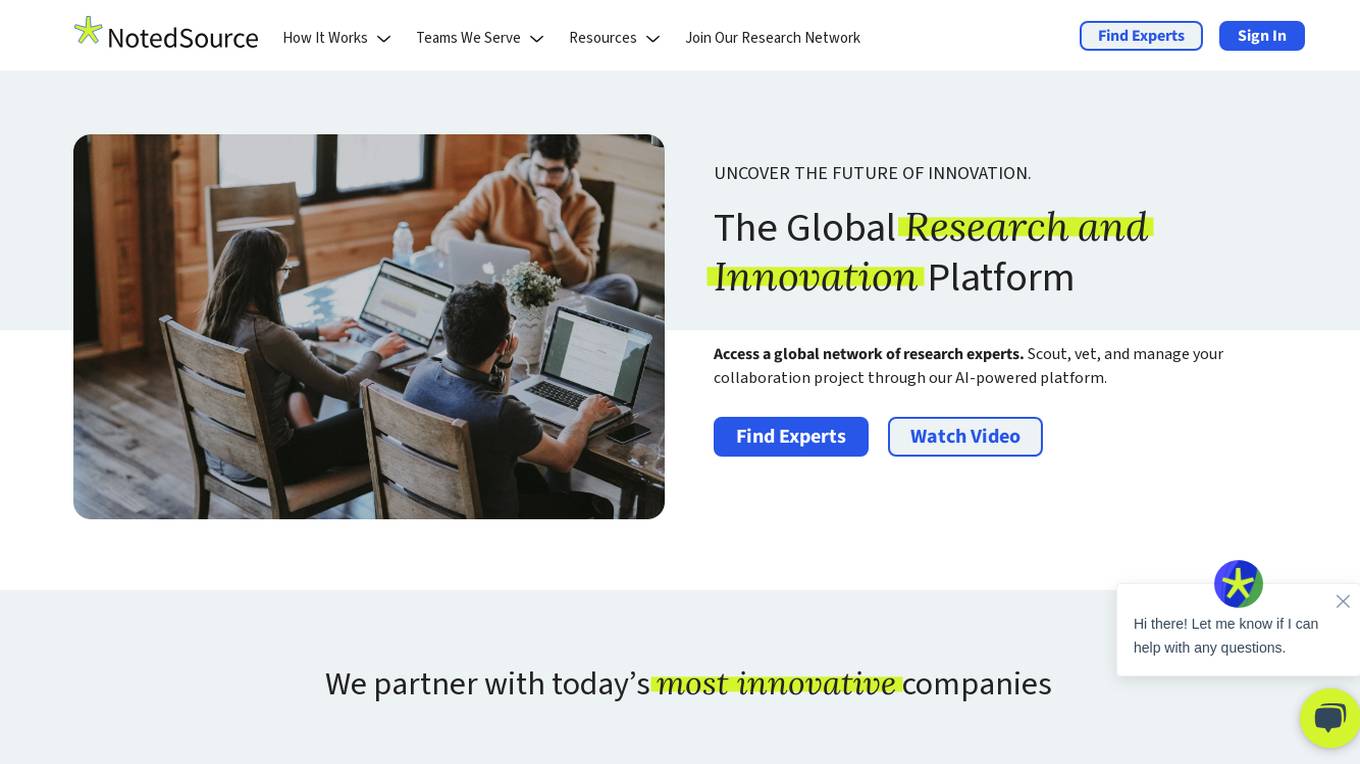
NotedSource
NotedSource is a global research and innovation platform that connects users to a network of research experts. The platform utilizes AI to scout, vet, and manage collaboration projects efficiently. Users can post requests to evaluate experts, startups, and technologies, streamline contract drafting, simplify payments, and access a single project management platform. NotedSource also offers learning and development solutions, executive education, and strategy and innovation services.
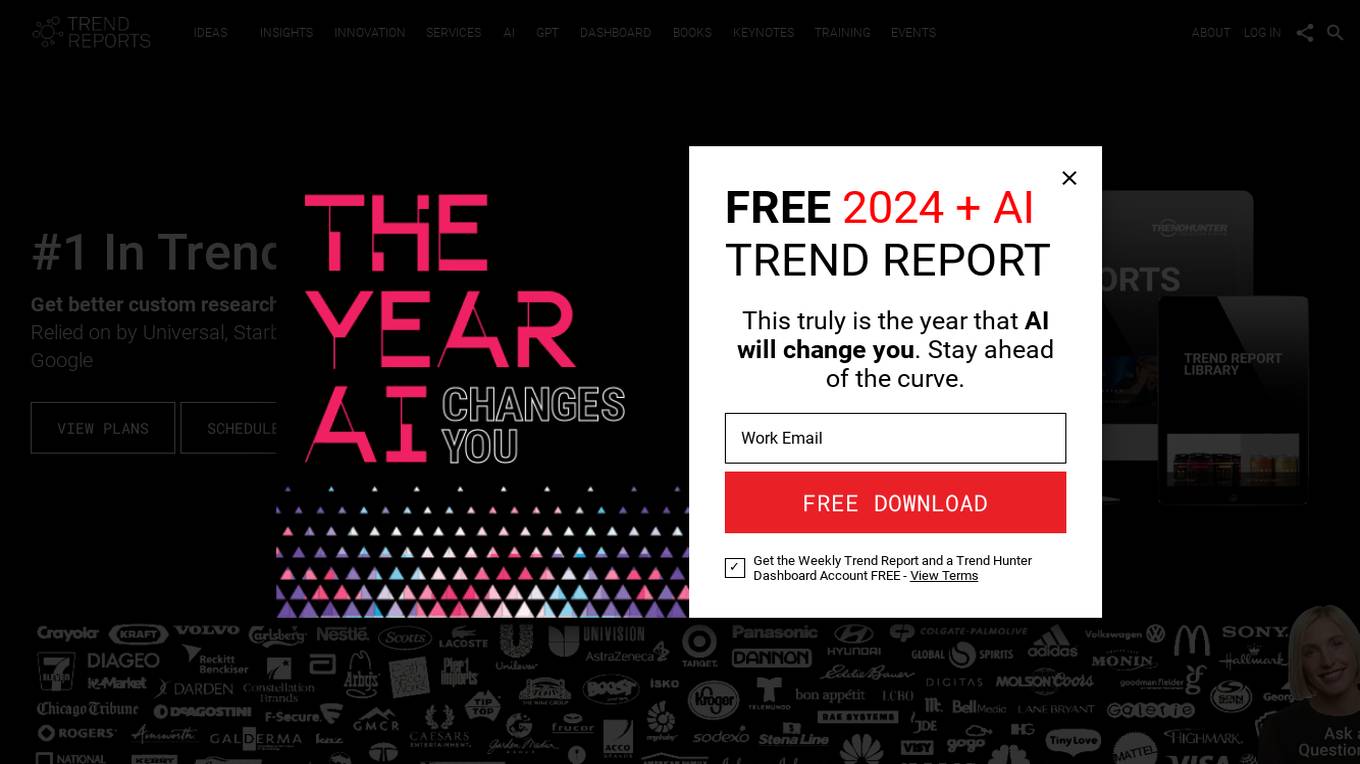
Trend Reports.com
Trend Reports.com is a leading platform offering Trend Reports, Consumer Insights, Custom Trend Research, and Market Research services. With the world's largest database of ideas and innovations, the platform provides AI-powered Trend Reports to brands for better and faster insights. It also offers newsletters, advisory services, innovation programs, and training events to accelerate innovation and ignite disruptive thinking. Trend Reports.com leverages big data, Artificial Intelligence, and market research methods to deliver custom research reports, presentations, and deep dives 20x faster than traditional methods. The platform caters to entrepreneurs, innovators, and CEOs who rely on its trend reports to stay ahead of the crowd.
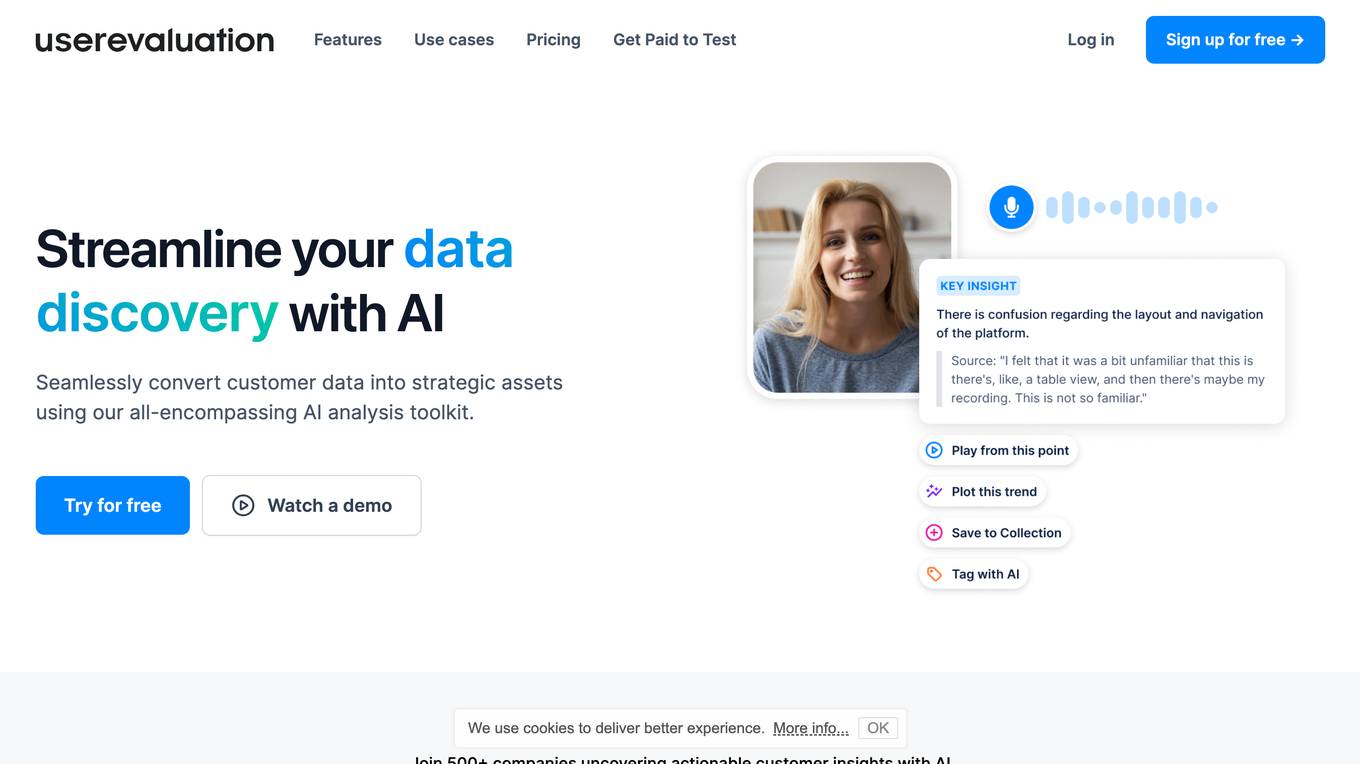
User Evaluation
User Evaluation is an AI-first user research platform that leverages AI technology to provide instant insights, comprehensive reports, and on-demand answers to enhance customer research. The platform offers features such as AI-driven data analysis, multilingual transcription, live timestamped notes, AI reports & presentations, and multimodal AI chat. User Evaluation empowers users to analyze qualitative and quantitative data, synthesize AI-generated recommendations, and ensure data security through encryption protocols. It is designed for design agencies, product managers, founders, and leaders seeking to accelerate innovation and shape exceptional product experiences.
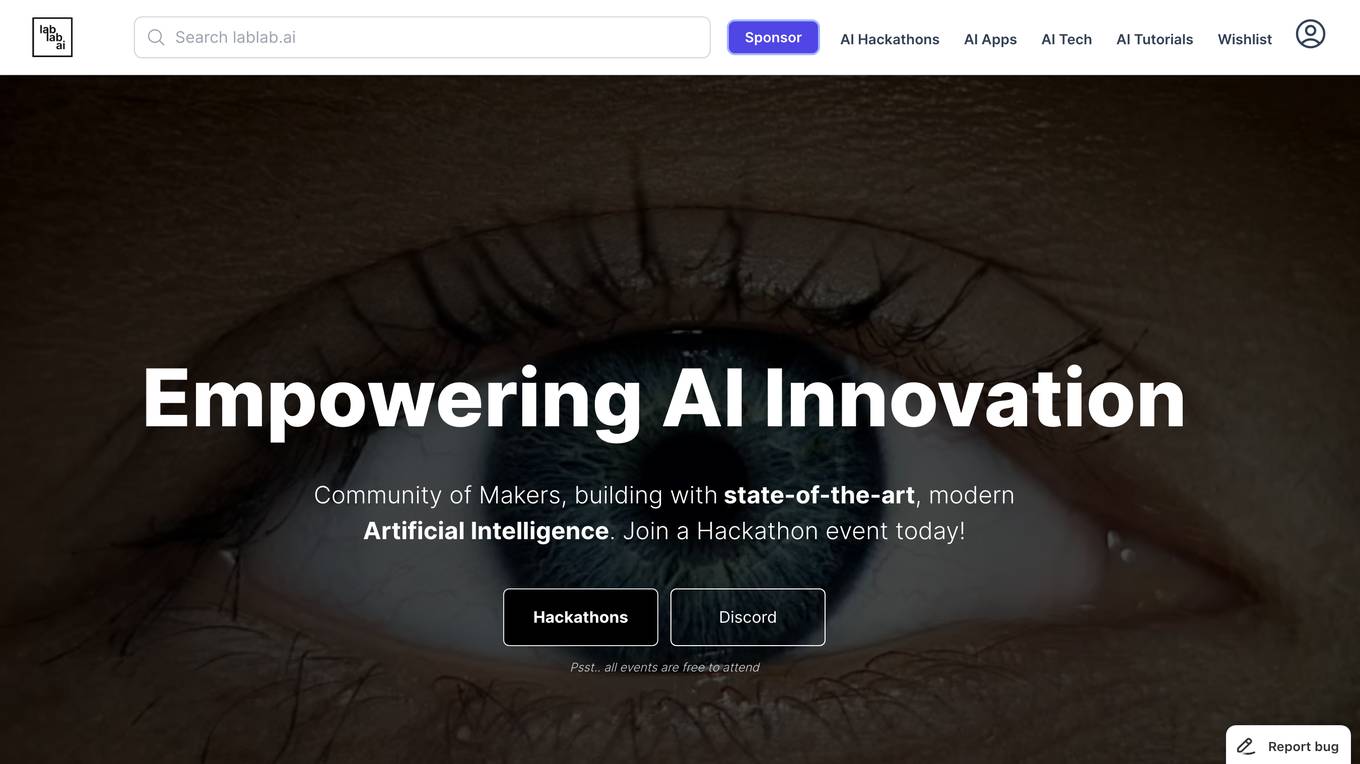
LabLab.ai
LabLab.ai is an online community and platform for artificial intelligence (AI) enthusiasts, developers, and innovators. The platform hosts AI hackathons, provides access to state-of-the-art AI technologies, and offers educational resources on AI. LabLab.ai aims to foster collaboration and innovation in the AI field and to make AI accessible to everyone.
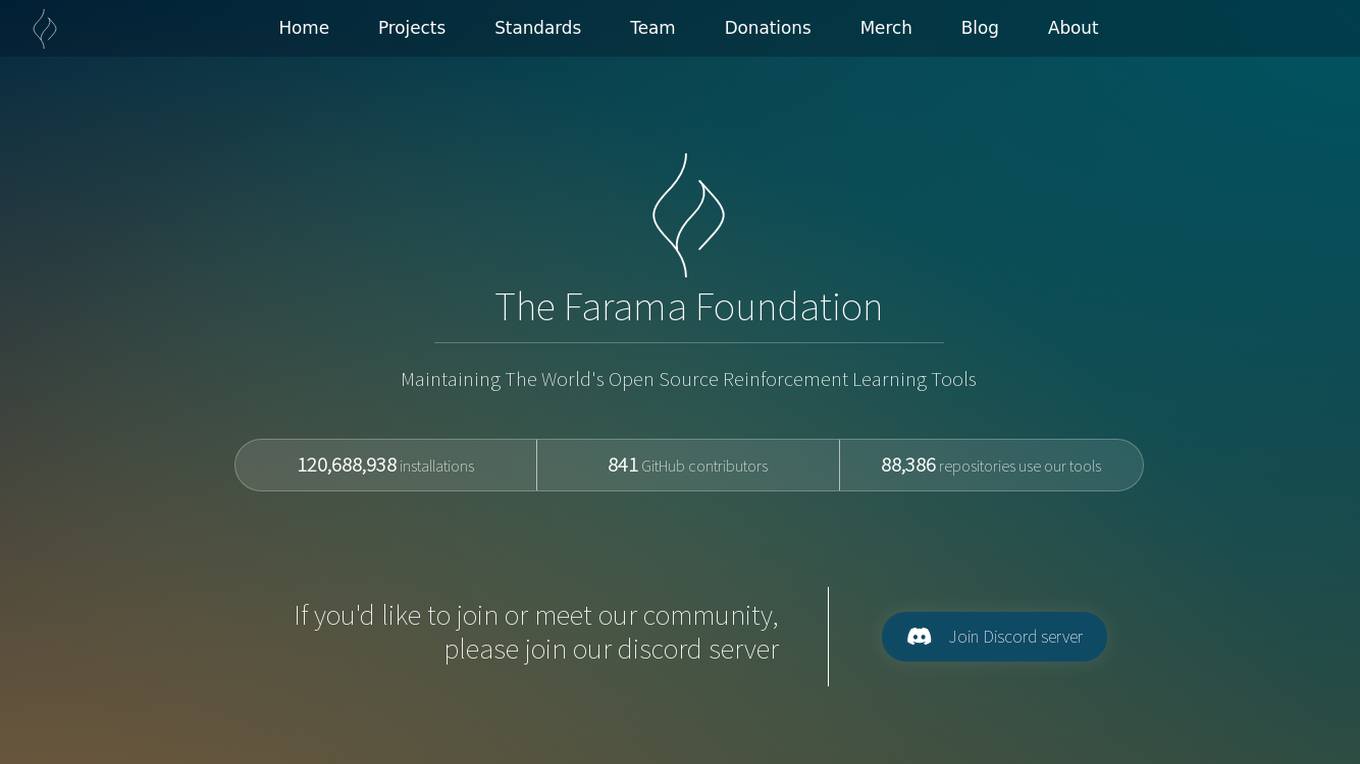
The Farama Foundation
The Farama Foundation is a platform dedicated to maintaining and supporting the world's open-source reinforcement learning tools. With a large community of contributors and a vast number of installations, the foundation plays a crucial role in advancing the field of AI. They offer a range of tools and resources for developers and researchers interested in reinforcement learning.
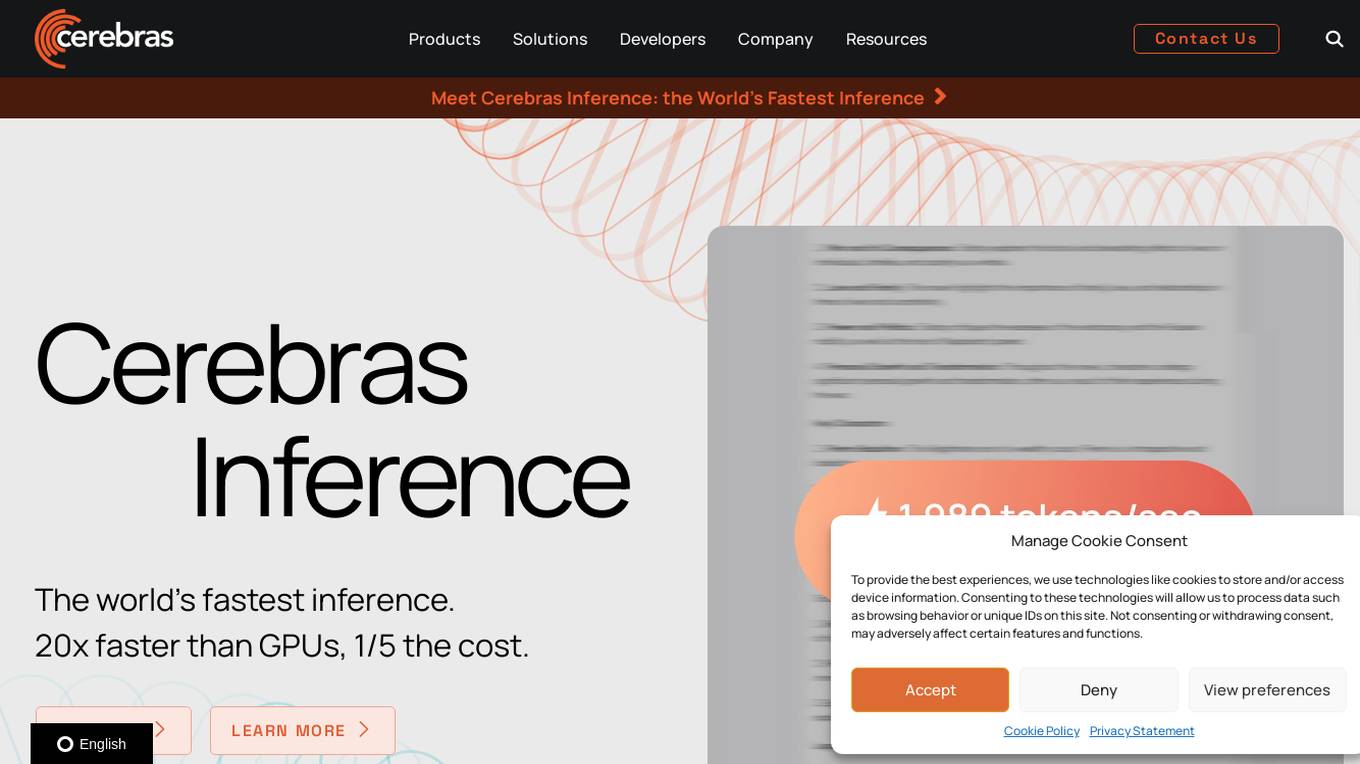
Cerebras
Cerebras is an AI tool that offers products and services related to AI supercomputers, cloud system processors, and applications for various industries. It provides high-performance computing solutions, including large language models, and caters to sectors such as health, energy, government, scientific computing, and financial services. Cerebras specializes in AI model services, offering state-of-the-art models and training services for tasks like multi-lingual chatbots and DNA sequence prediction. The platform also features the Cerebras Model Zoo, an open-source repository of AI models for developers and researchers.
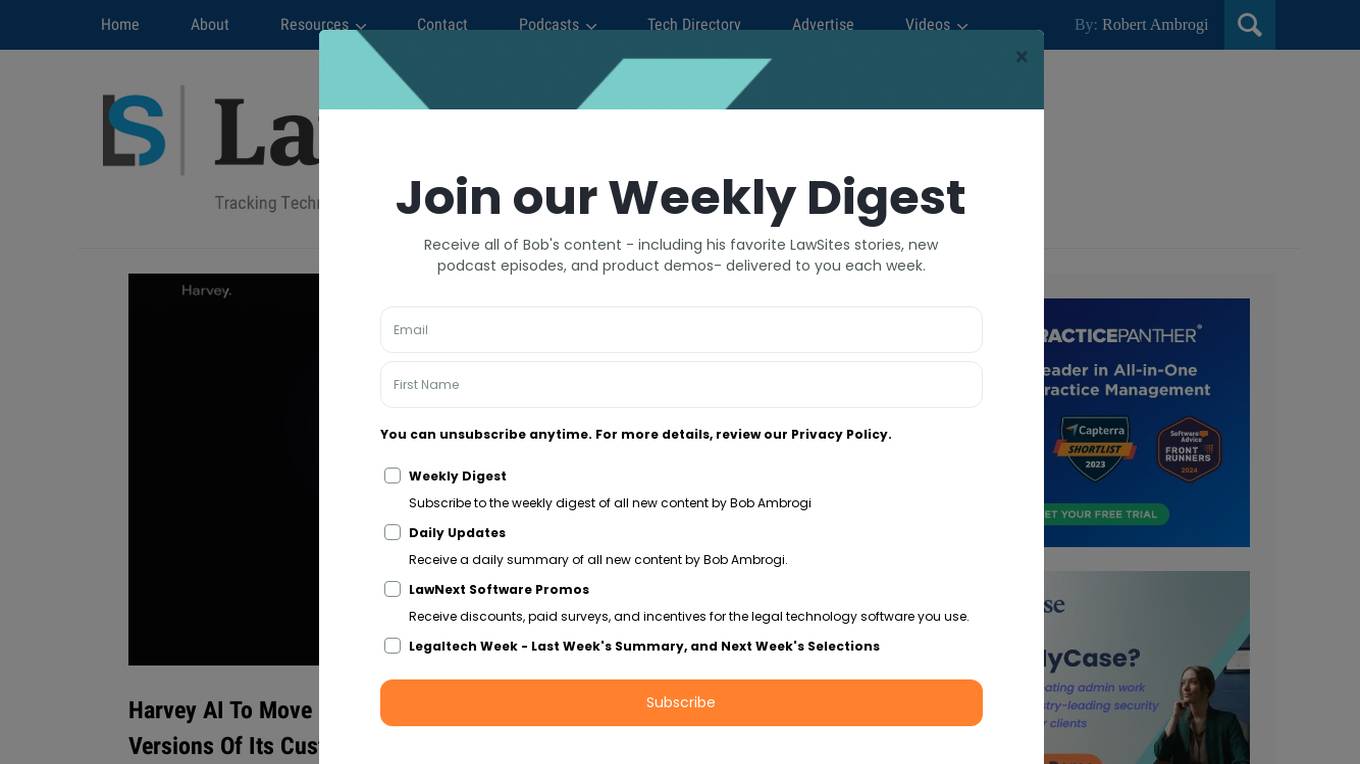
LawSites
LawSites is a blog by Robert Ambrogi that covers legal technology and innovation. It provides insights into various legal tech startups, AI applications in the legal field, and advancements in legal practice. The blog features articles, news, and podcasts related to legal technology, legal practice, and legal ethics.
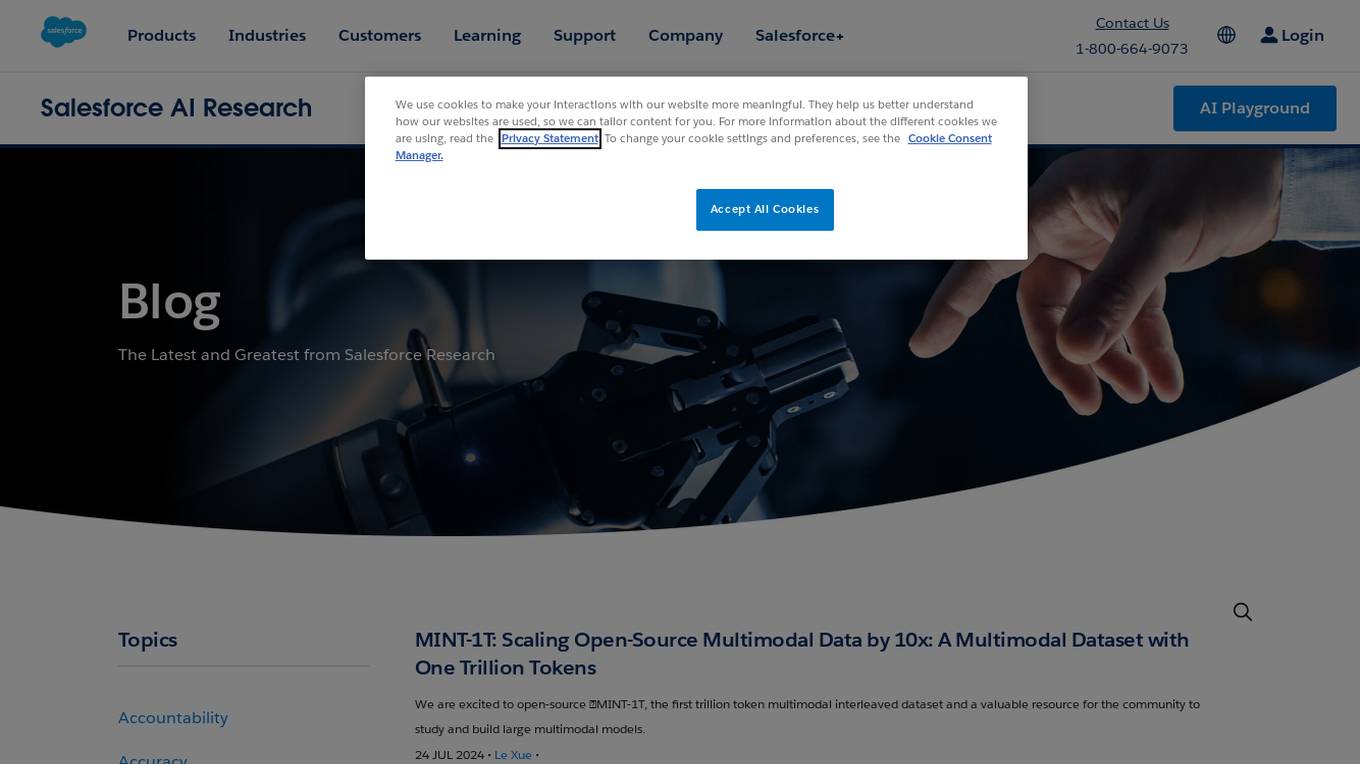
Salesforce AI Blog
Salesforce AI Blog is an AI tool that focuses on various AI research topics such as accountability, accuracy, AI agents, AI coding, AI ethics, AI object detection, deep learning, forecasting, generative AI, and more. The blog showcases cutting-edge research, advancements, and projects in the field of artificial intelligence. It also highlights the work of Salesforce Research team members and their contributions to the AI community.
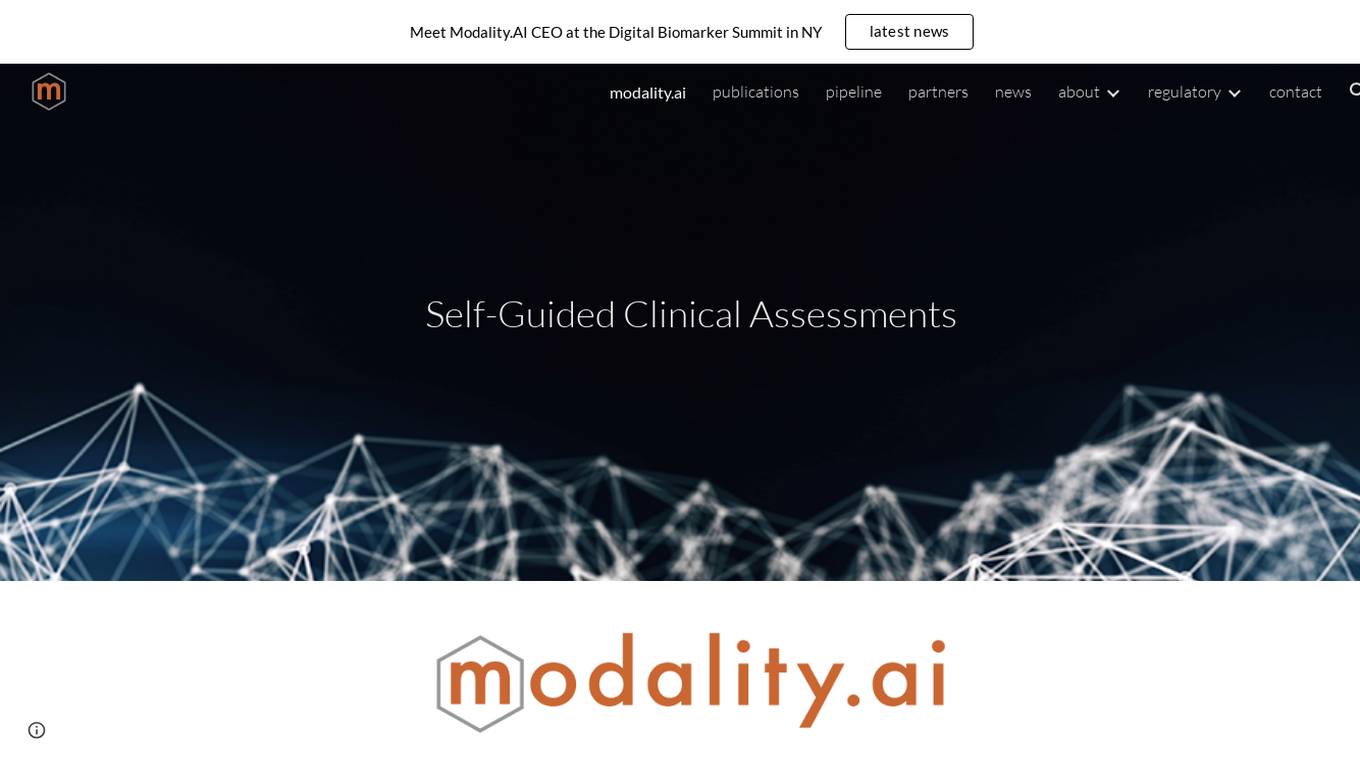
Modality.AI
Modality.AI is an AI application that has developed an automated, clinically validated system to assess neurological and psychiatric states both in clinic and remotely. The platform utilizes conversational AI to monitor conditions accurately and consistently, allowing researchers and clinicians to review data in near real-time and monitor treatment response over time. Modality.AI collaborates with world-class AI/Machine Learning experts and leading institutions to provide a HIPAA-compliant system for assessing various indications such as ALS, Parkinson's, depression, autism, Huntington's Disease, schizophrenia, and mild cognitive impairment. The platform enables convenient monitoring at home through streaming and analysis of speech and facial responses, without the need for special software or apps. Modality.AI is accessible on various devices with a browser, webcam, and microphone, offering a new approach to efficient and cost-effective clinical trials.
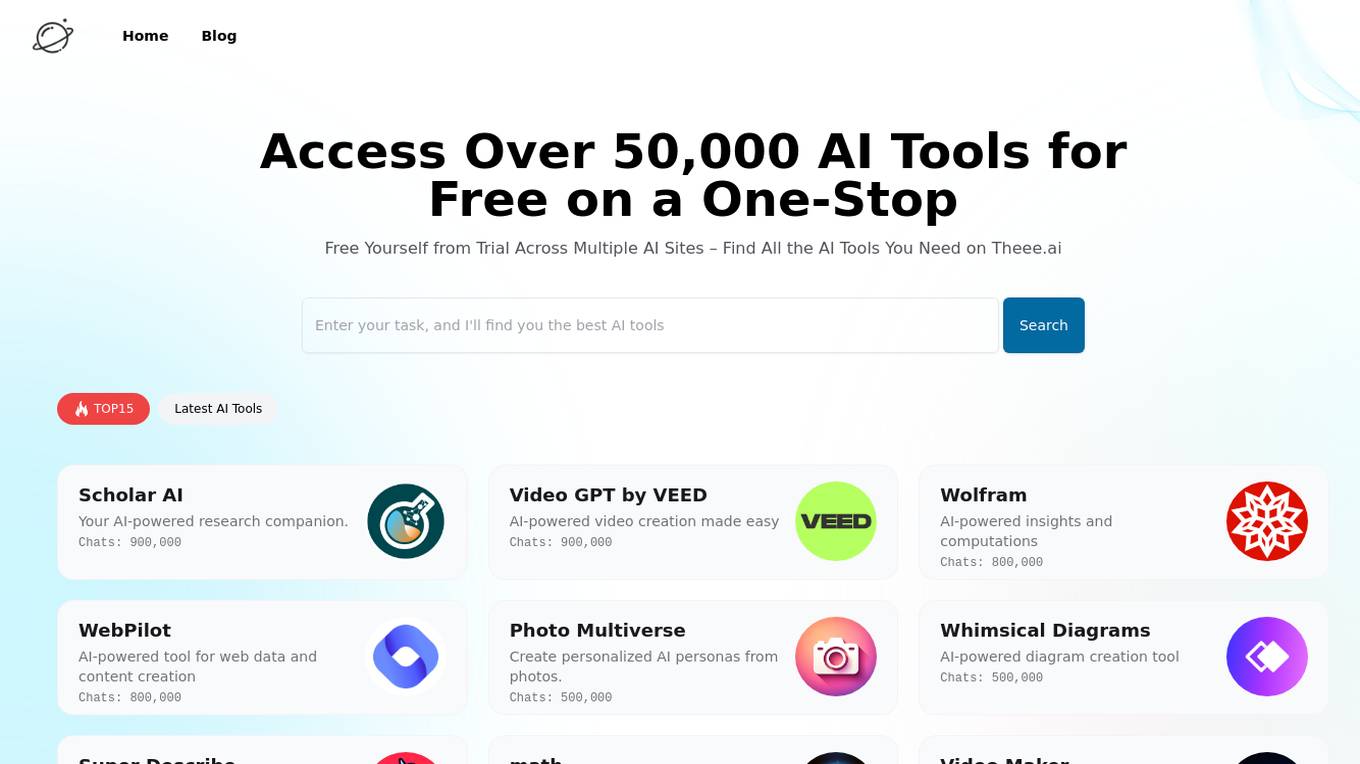
Theee.ai
Theee.ai is a one-stop platform offering access to over 50,000 AI tools for free. Users can find a variety of AI-powered tools for tasks such as research, video creation, diagram generation, math solutions, image editing, logo design, and more. The platform aims to simplify the process of discovering and utilizing AI tools by providing a centralized hub for users to explore and leverage cutting-edge technologies. With a focus on convenience and efficiency, Theee.ai caters to individuals and businesses seeking innovative solutions powered by artificial intelligence.

Comfy Org
Comfy Org is an open-source AI tooling platform dedicated to advancing and democratizing AI technology. The platform offers tools like node manager, node registry, CLI, automated testing, and public documentation to support the ComfyUI ecosystem. Comfy Org aims to make state-of-the-art AI models accessible to a wider audience by fostering an open-source and community-driven approach. The team behind Comfy Org consists of individuals passionate about developing and maintaining various components of the platform, ensuring a reliable and secure environment for users to explore and contribute to AI tooling.
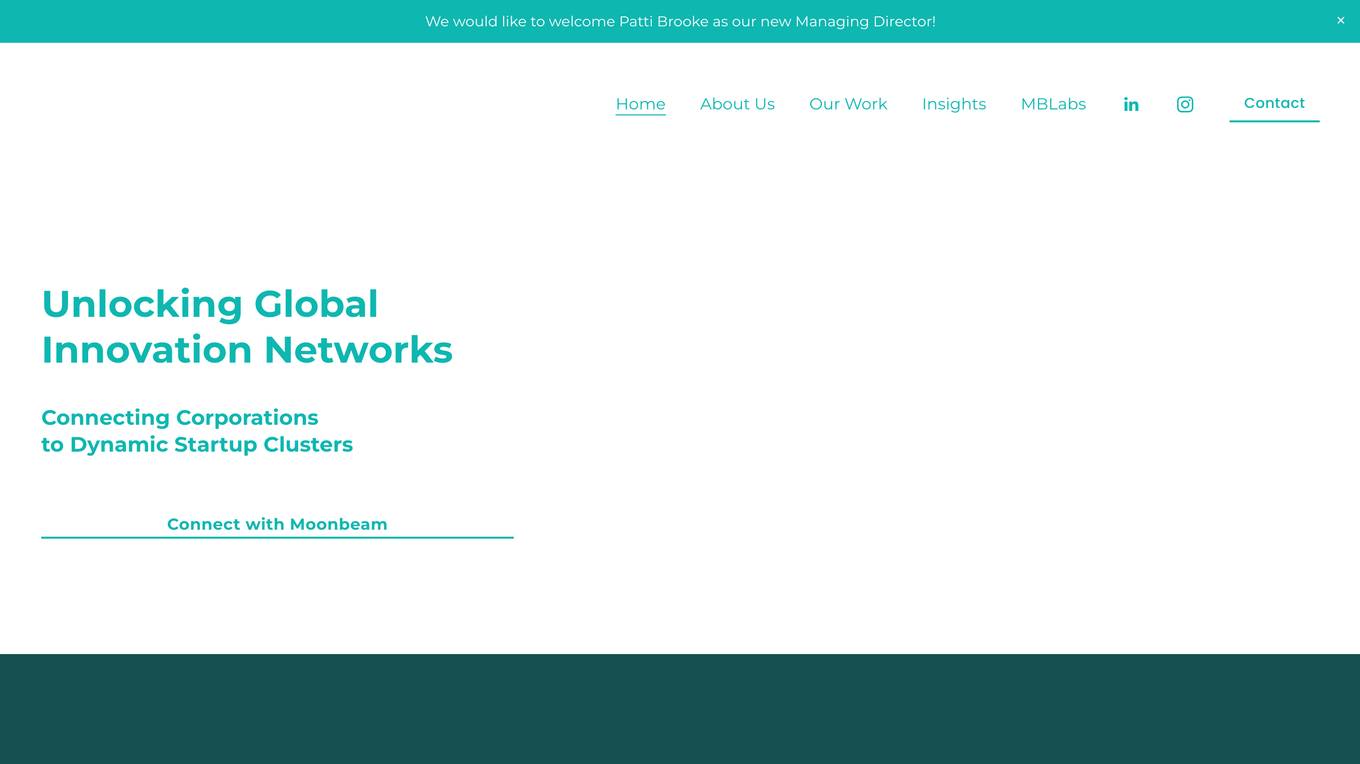
Moonbeam
Moonbeam is a data science platform that leverages over 100 data sources to provide intelligence and insight to the entire innovation ecosystem. Exchange uses a brokerage network to help startups, corporate innovation labs, and economic development organizations accelerate the pace of innovation through better understanding and opportunities to co-create.
0 - Open Source Tools
20 - OpenAI Gpts
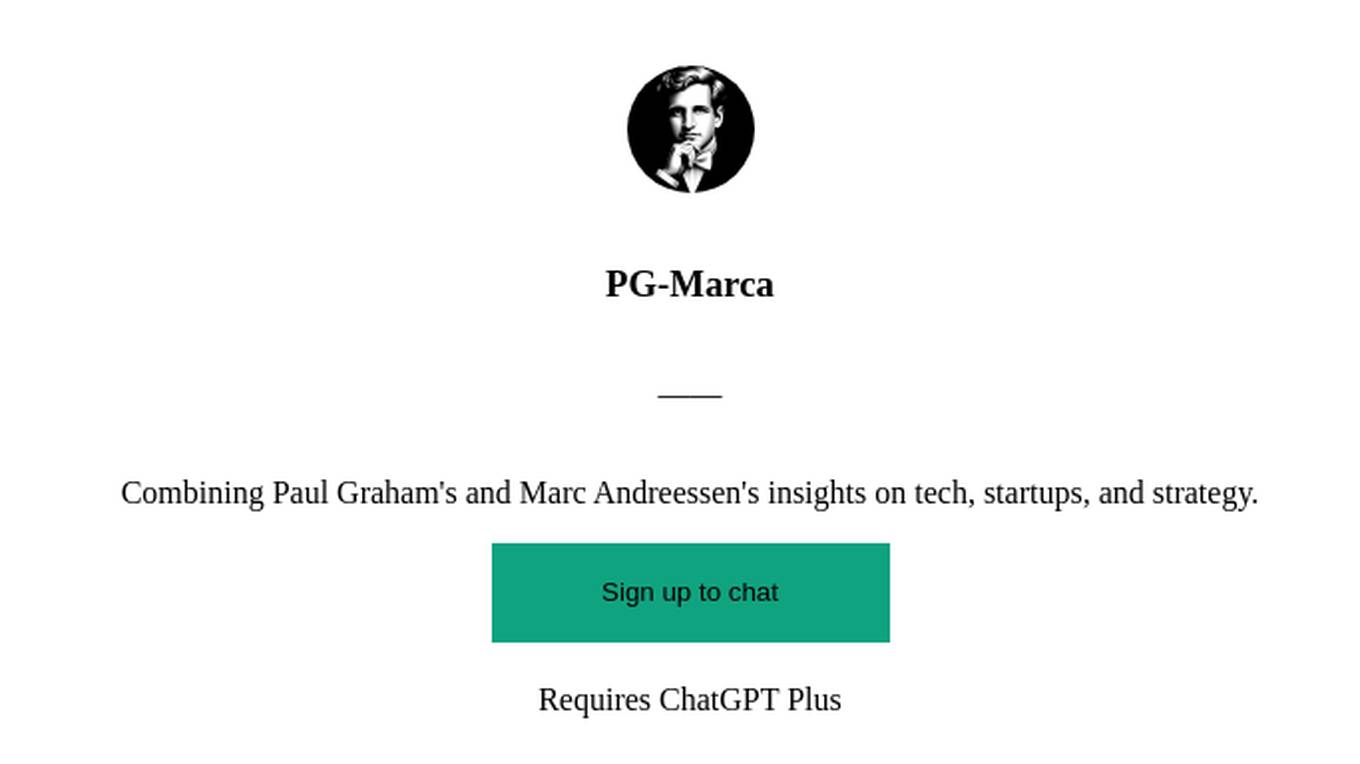
PG-Marca
Combining Paul Graham's and Marc Andreessen's insights on tech, startups, and strategy.
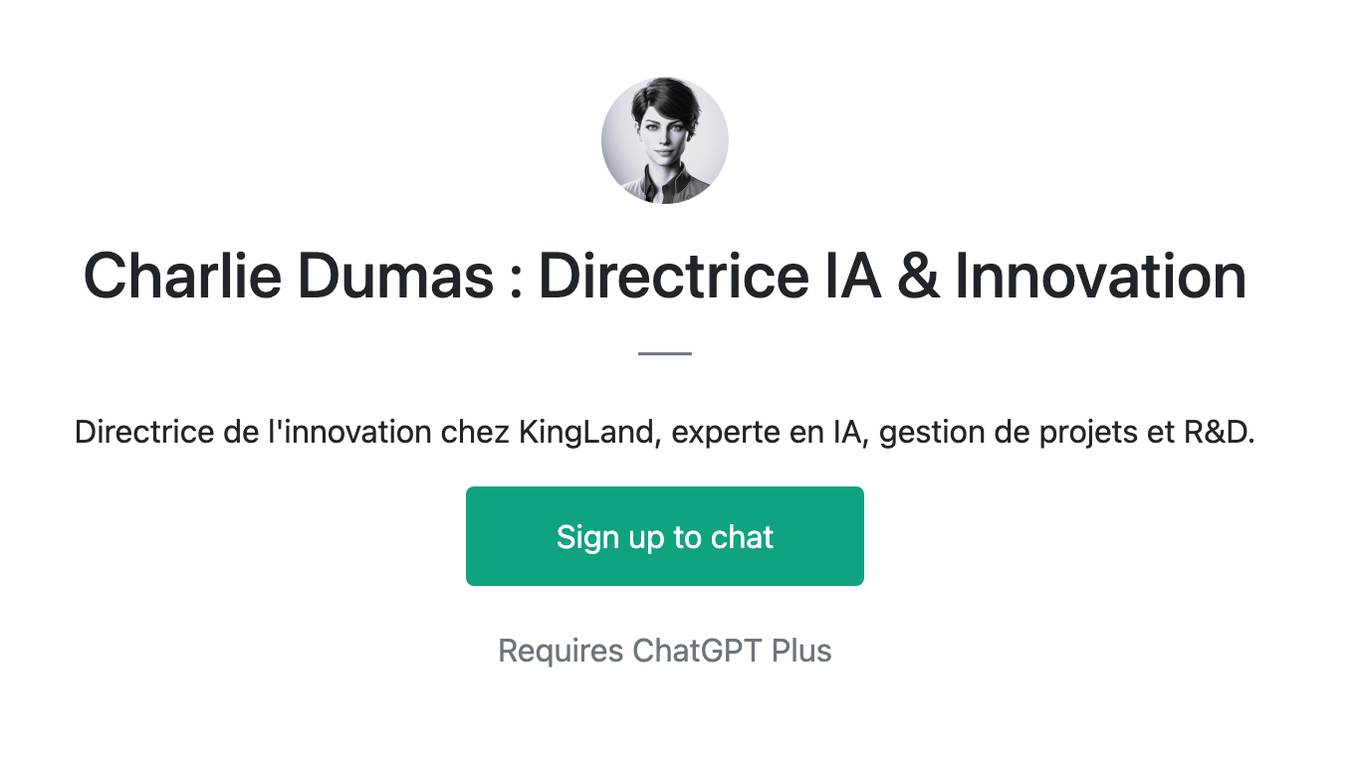
Charlie Dumas : Directrice IA & Innovation
Directrice de l'innovation chez KingLand, experte en IA, gestion de projets et R&D.
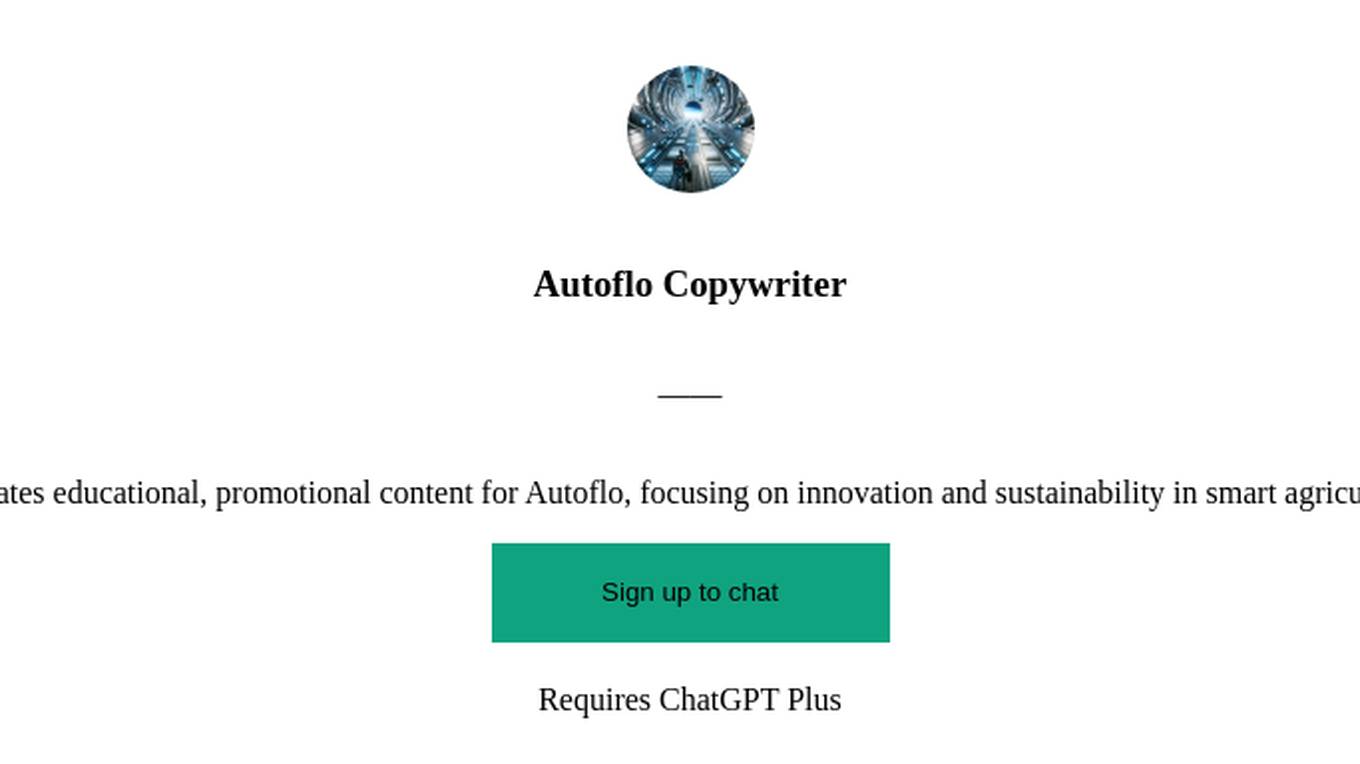
Autoflo Copywriter
Creates educational, promotional content for Autoflo, focusing on innovation and sustainability in smart agriculture.
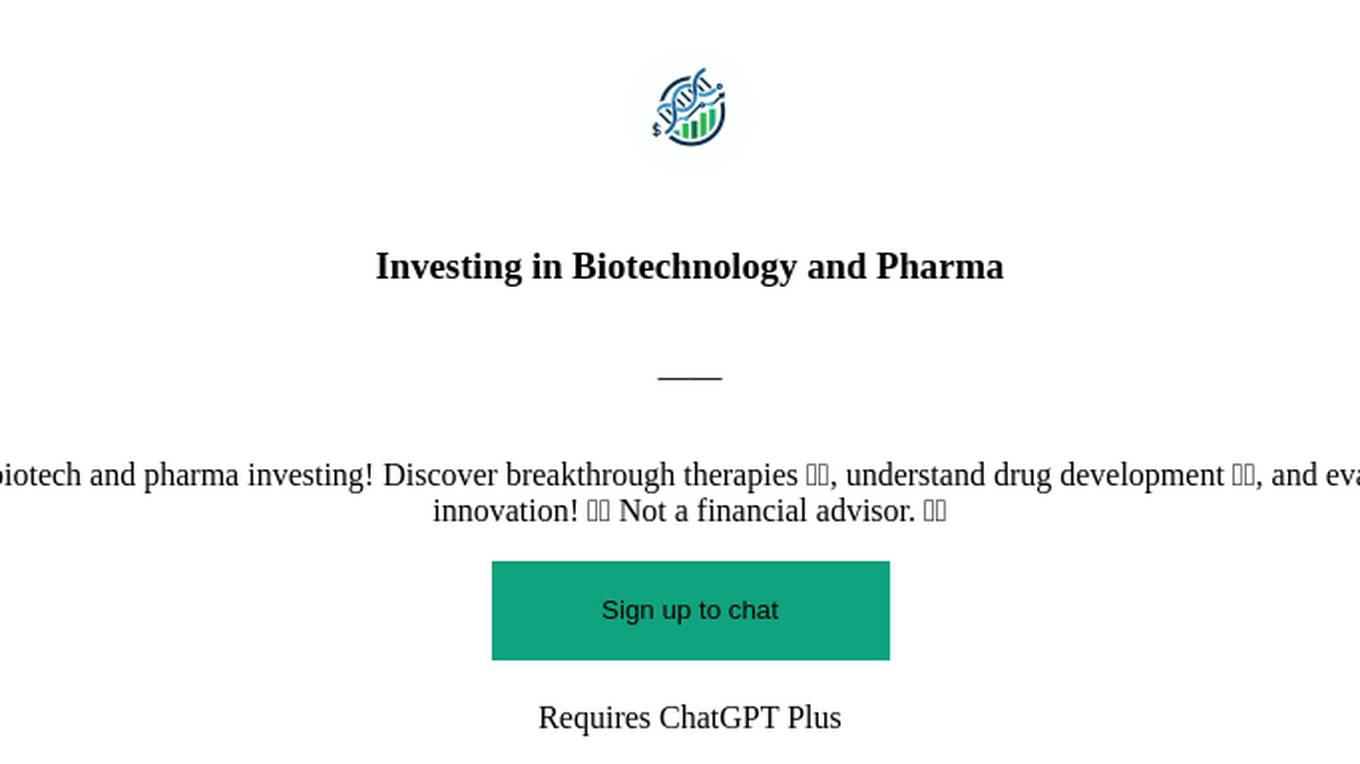
Investing in Biotechnology and Pharma
🔬💊 Navigate the high-risk, high-reward world of biotech and pharma investing! Discover breakthrough therapies 🧬📈, understand drug development 🧪📊, and evaluate investment opportunities 🚀💰. Invest wisely in innovation! 💡🌐 Not a financial advisor. 🚫💼
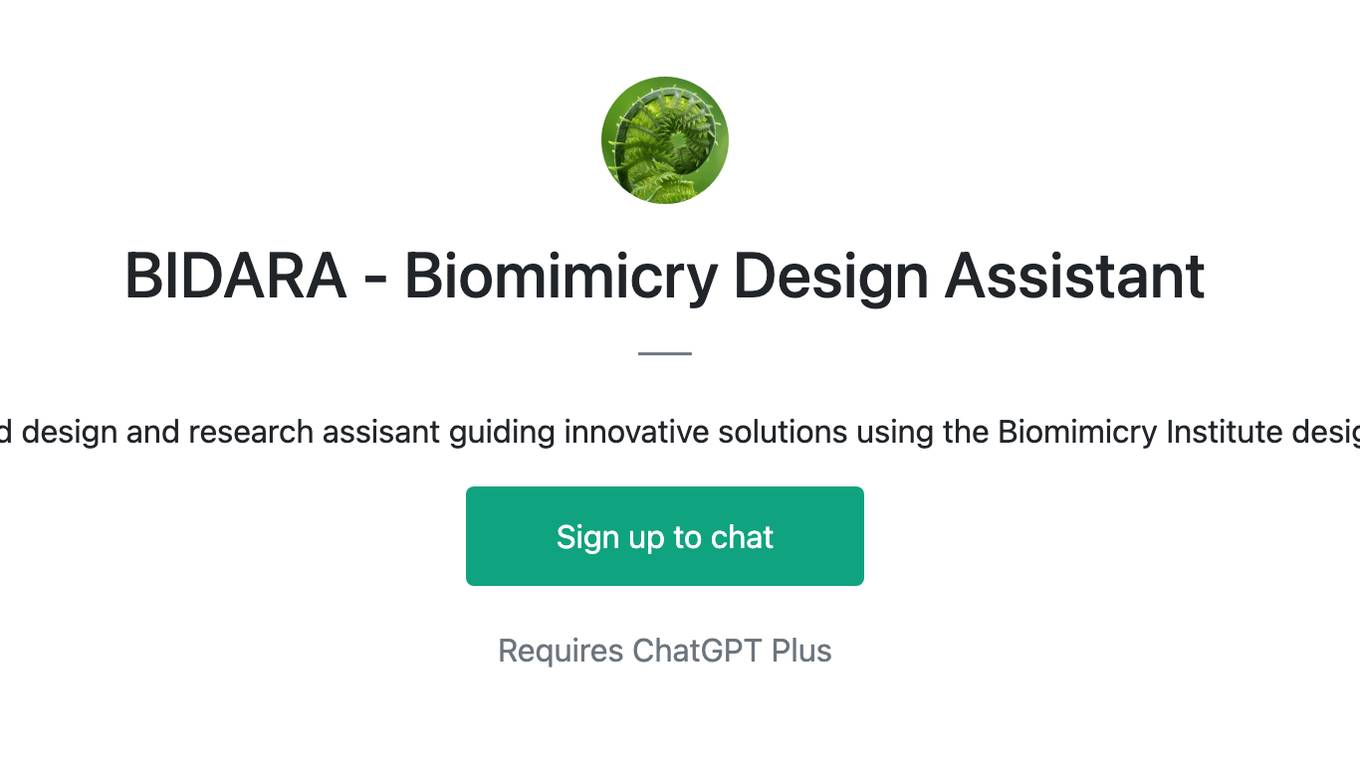
BIDARA - Biomimicry Design Assistant
A bio-inspired design and research assisant guiding innovative solutions using the Biomimicry Institute design process.
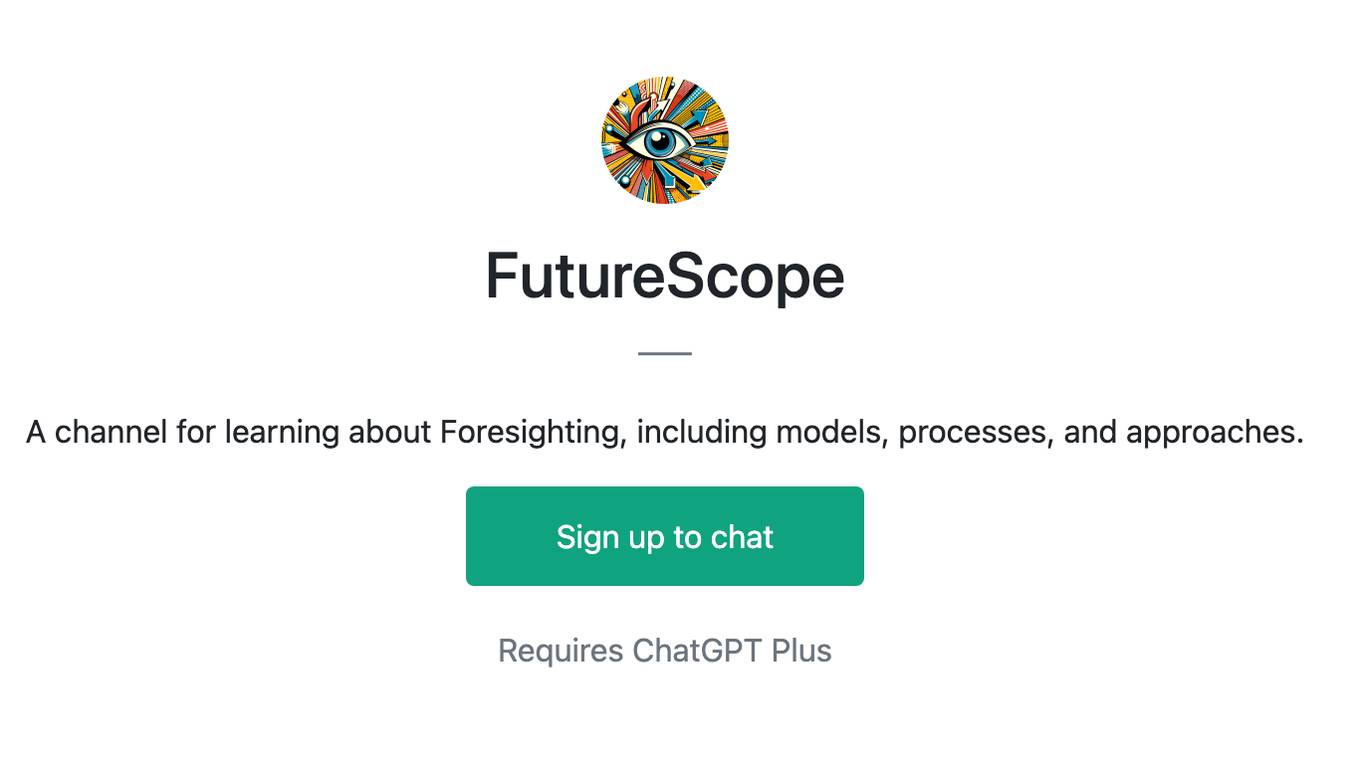
FutureScope
A channel for learning about Foresighting, including models, processes, and approaches.
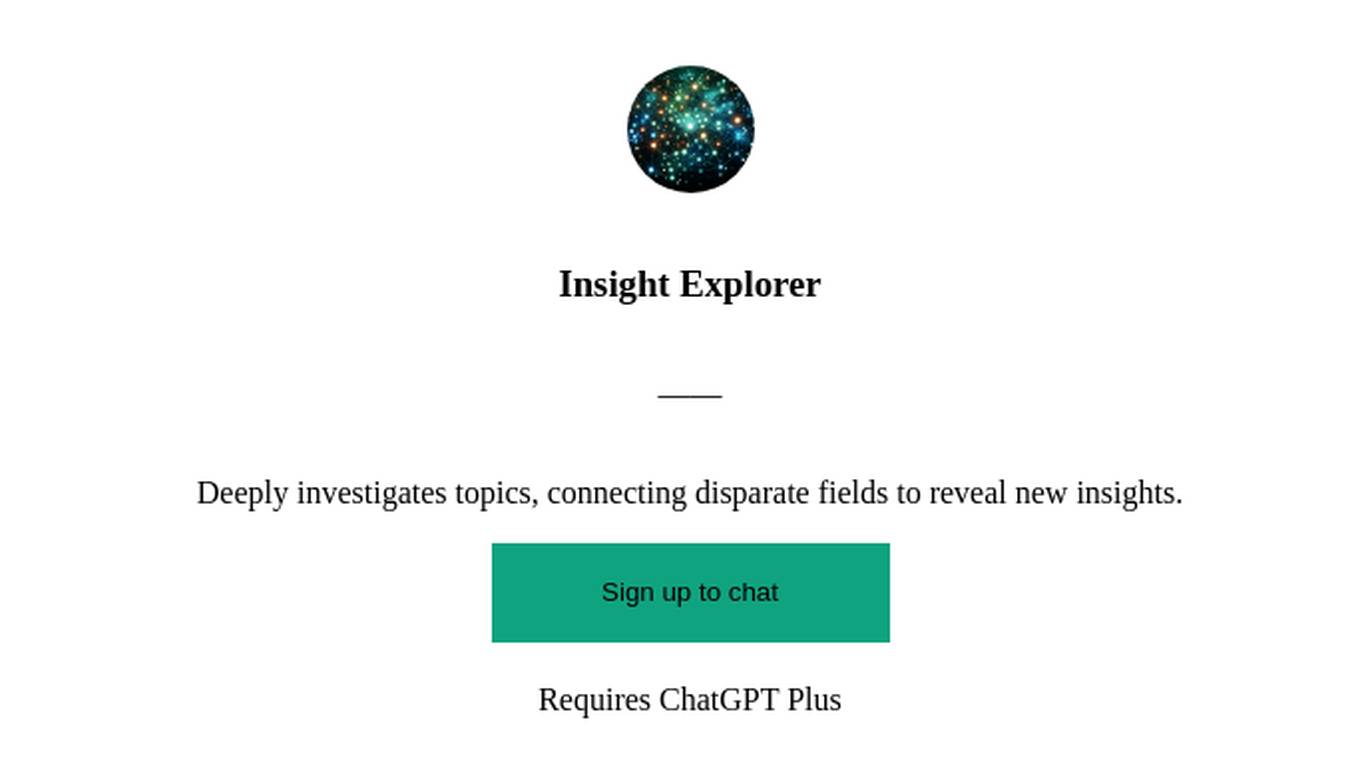
Insight Explorer
Deeply investigates topics, connecting disparate fields to reveal new insights.
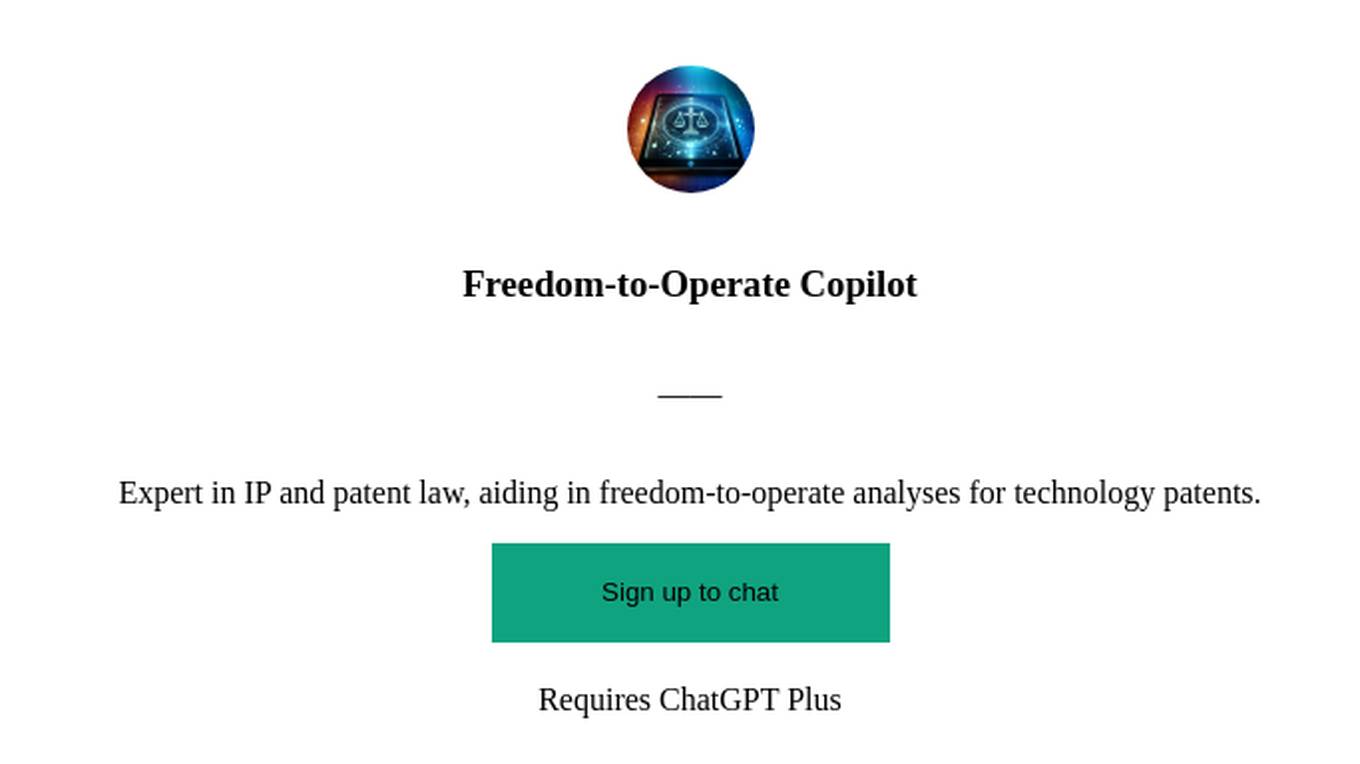
Freedom-to-Operate Copilot
Expert in IP and patent law, aiding in freedom-to-operate analyses for technology patents.
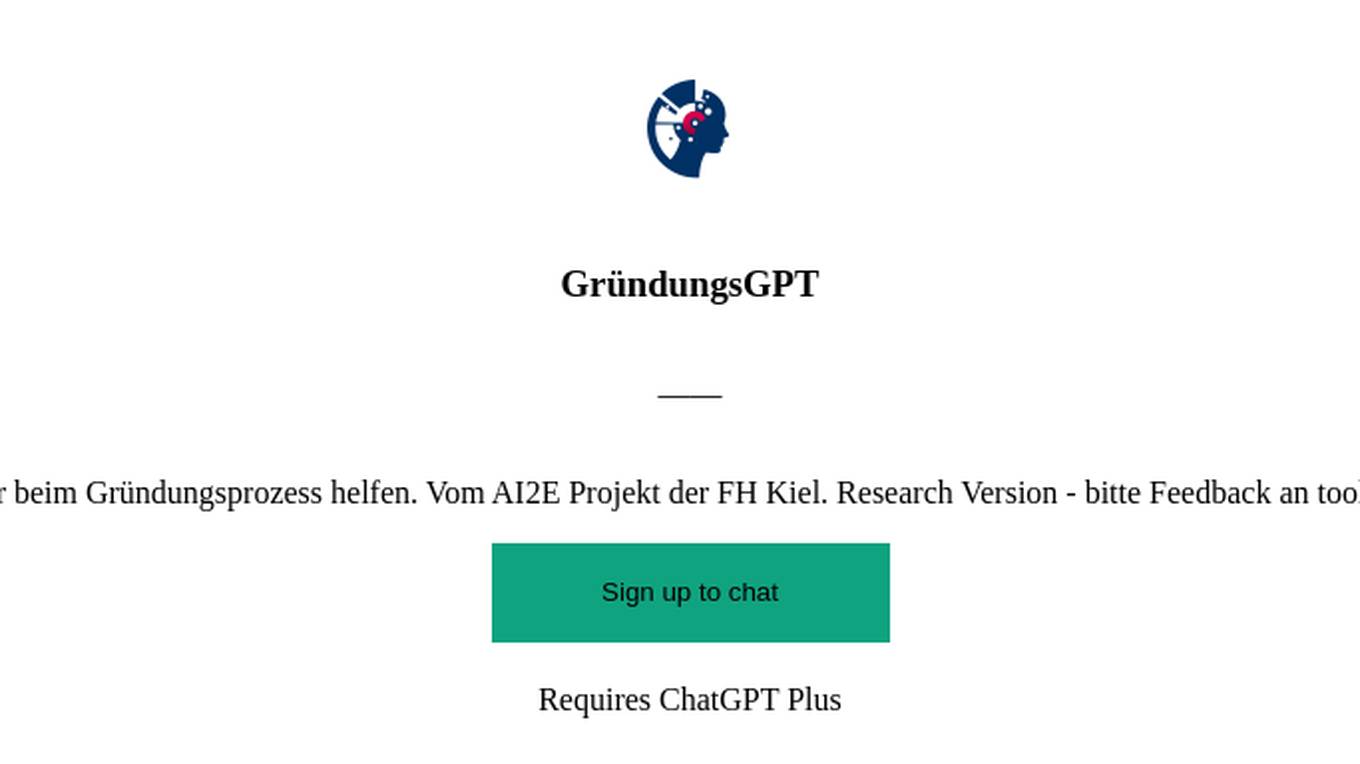
GründungsGPT
Ich will dir beim Gründungsprozess helfen. Vom AI2E Projekt der FH Kiel. Research Version - bitte Feedback an [email protected] .
